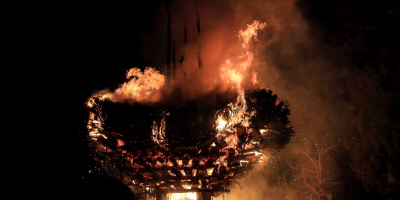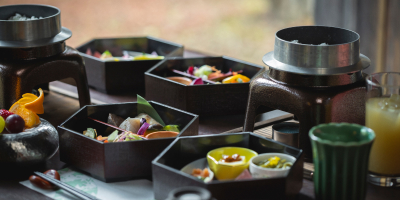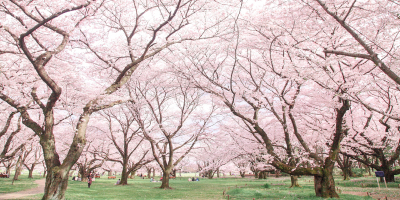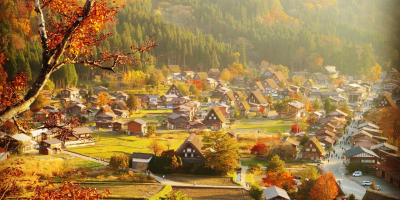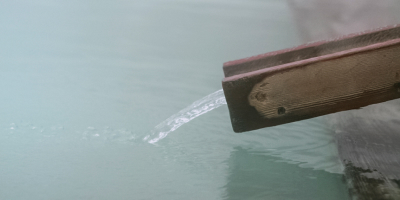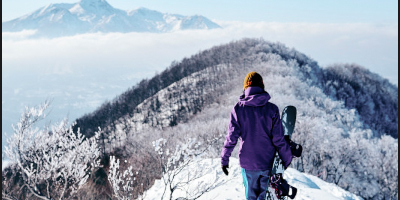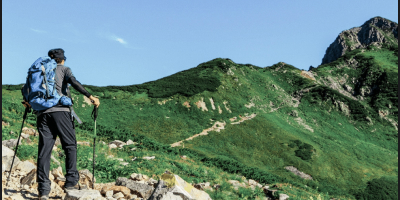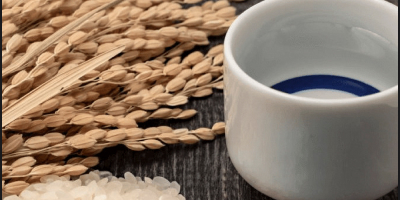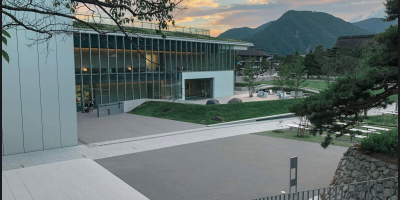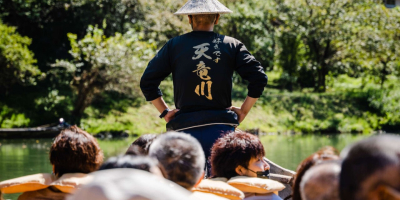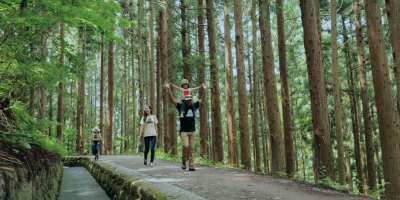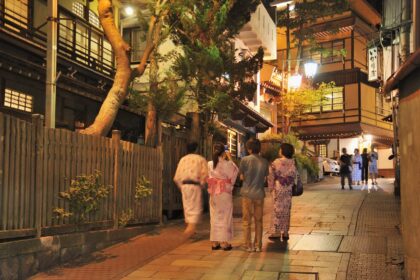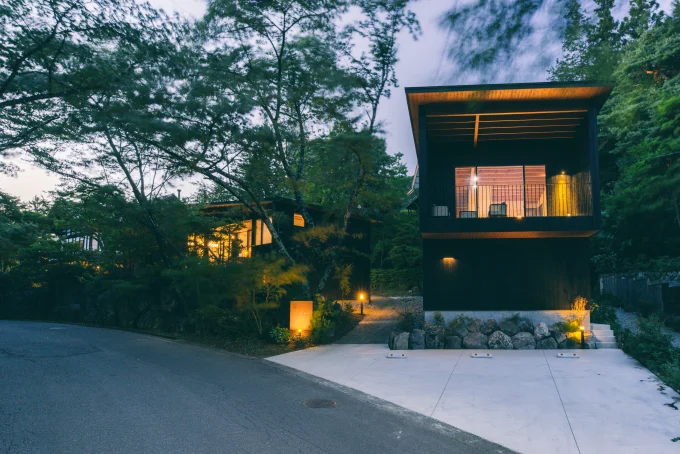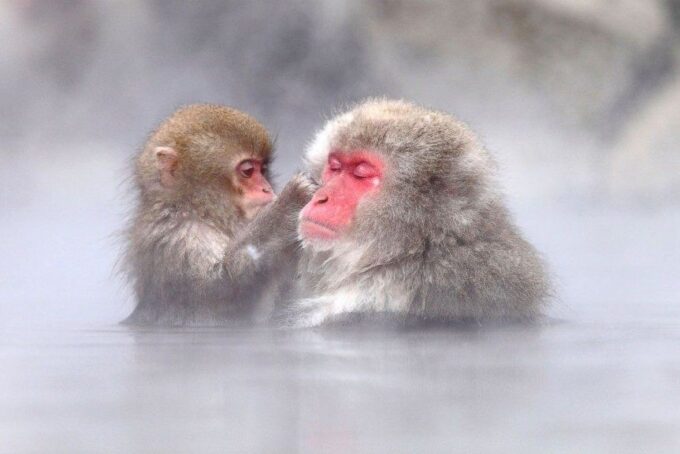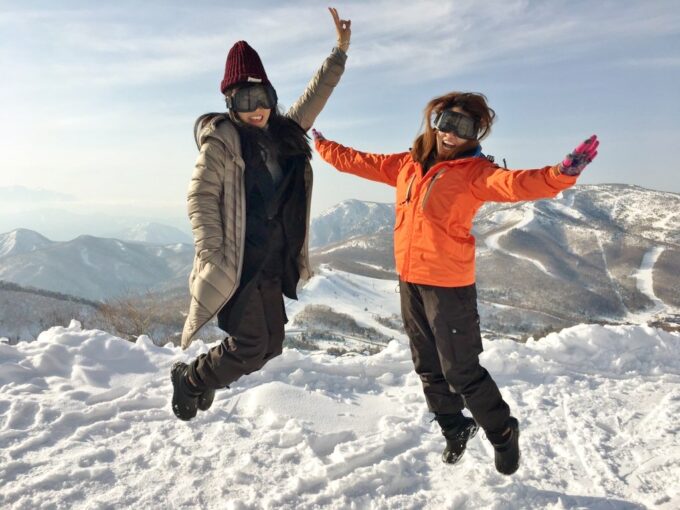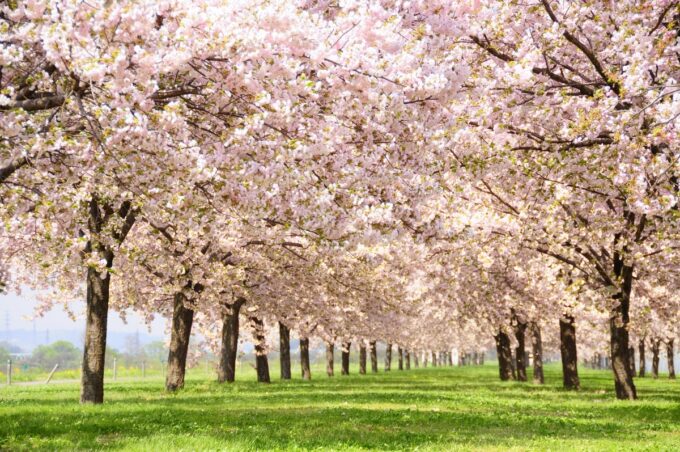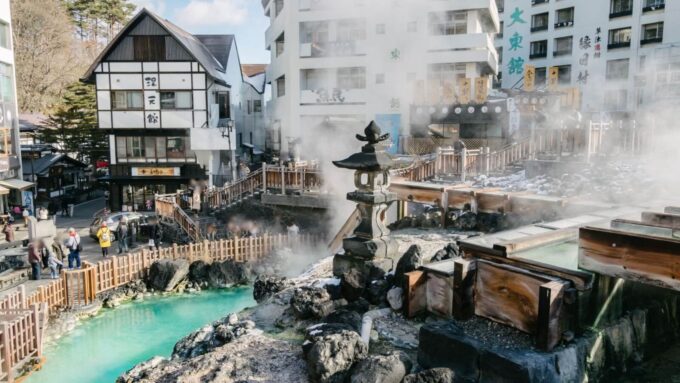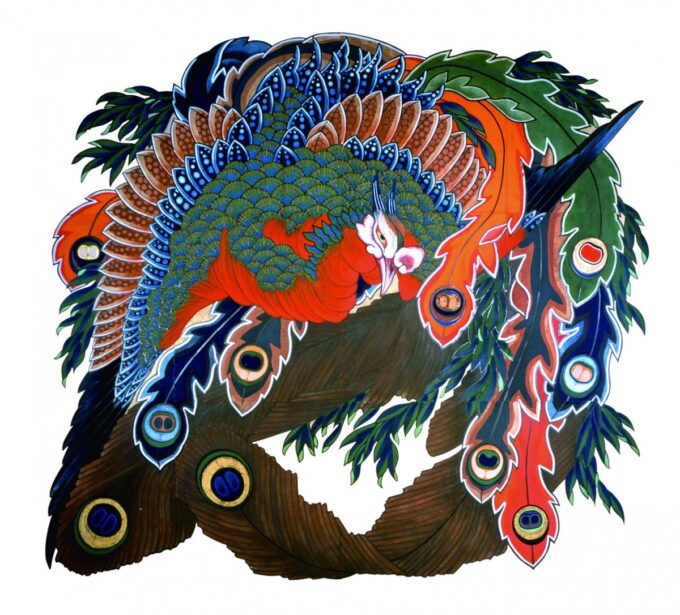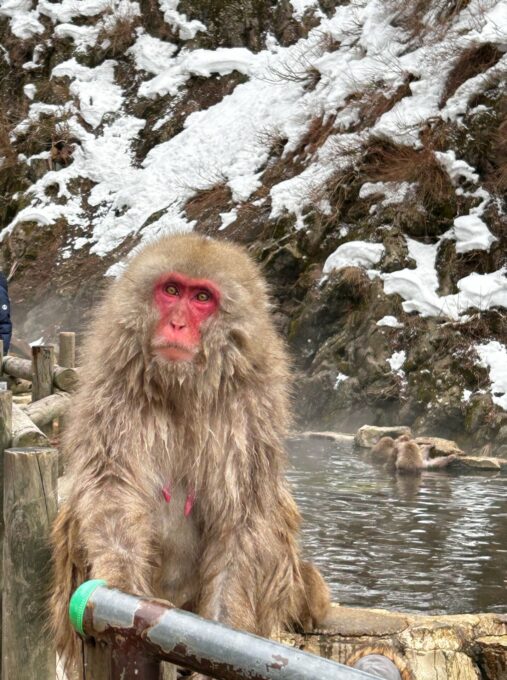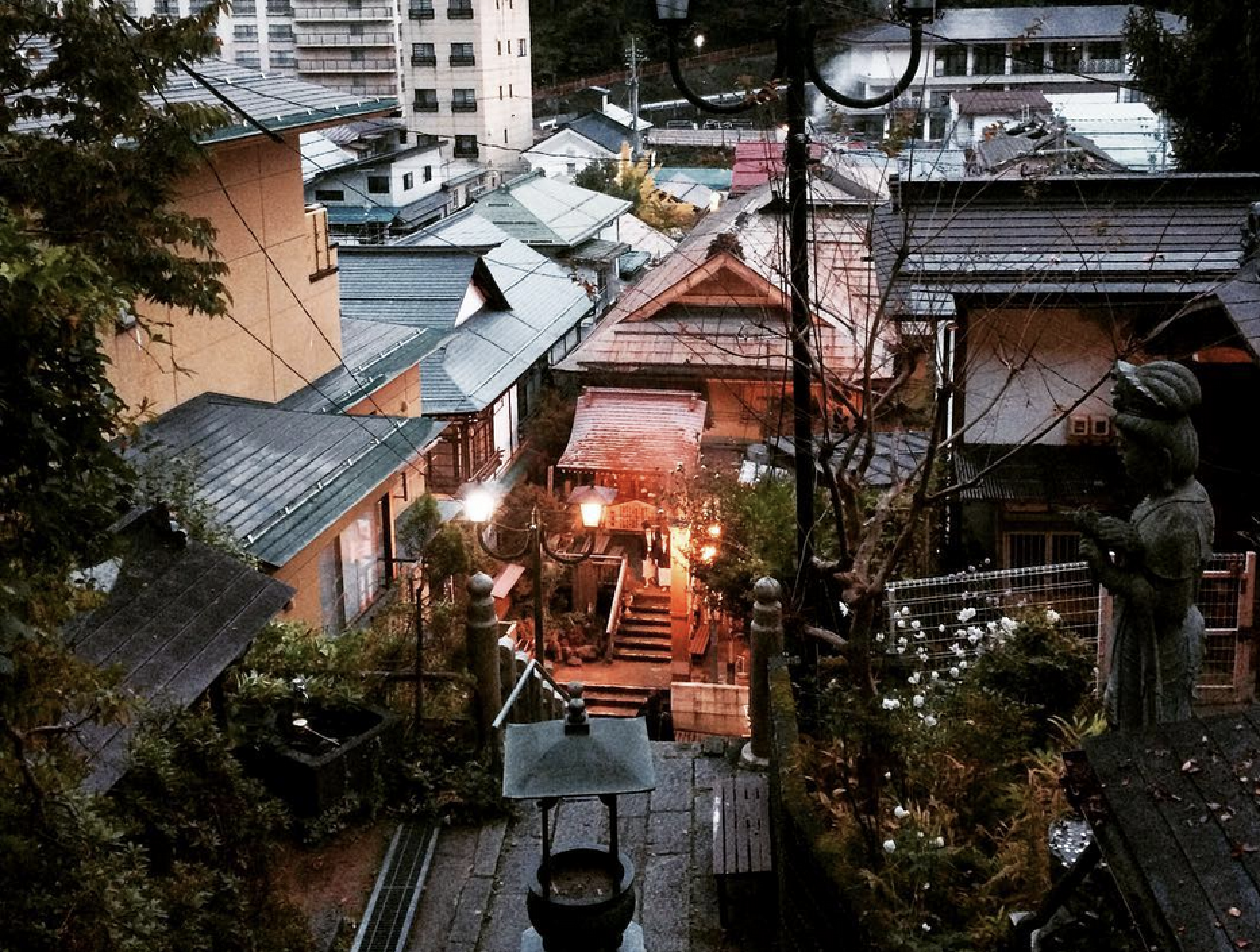
Located a short distance from the Jigokudani Monkey Park and Shiga Kogen Ski Resort, the historic hot spring towns of Yudanaka and Shibu Onsen offer some of the best accommodation options in the region - and it goes without staying that that means that visitors have plenty of great hot spring hotels and guesthouses to choose from. On this page you will find the following information:
-- Where are Yudanaka & Shibu Onsen?
-- 20 Things to Do Around Yudanaka & Shibu Onsen
-- Where to Stay When in Yudanaka & Shibu Onsen?
-- How to Get to Yudanaka & Shibu Onsen
-- Tour & Charters Around Yudanaka/Shibu Onsen
Visitors to Yudanaka and Shibu Onsen can enjoy the quaint charms to two of the region's best hot spring towns. Known as 'onsen' in Japanese, natural hot springs are found throughout the country with specific 'onsen towns' achieving renown for the claimed medicinal and relaxing properties of there water. Yudanaka and Shibu are two such towns. Fed by numerous sources of thermal water, the towns have long been considered as places of refuge, rest and healing and as such, have histories stretching back over one thousand years. Shibu Onsen is particularly charming, with quiet alleyways to explore and many historic buildings still lining the streets. Time and development has been less kind to Yudanaka but don't that distract you from the fact that it boasts some acclaimed hot spring guesthouses - and all of this within easy reach of Nagano Station.
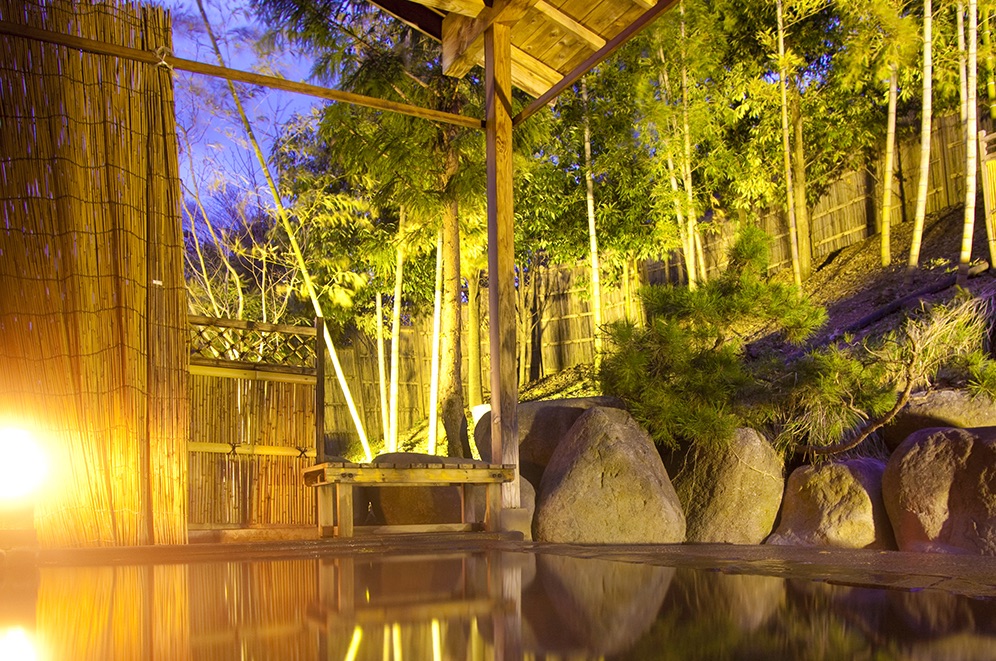

Based in Nagano and operating all year round, we are the region’s No.1 tour and charter operator. Our group tours run throughout the year and can also arrange private tours and charters to the park along with any destination in the region, and as a registered travel agent, we can package transport, accommodation and more together so you save and get the most out of your time in Yudanaka, Shibu and beyond – scroll to the bottom for details.
WHERE ARE YUDANAKA & SHIBU ONSEN?
Yudanaka and Shibu Onsen are located around 35KM to the north-east of Nagano City – 45-minutes by train or just under an hour by car. They sit around 270KM to the north-west of Tokyo, a 3.5 to 4-hour drive or 3 to 4-hours by train (via Nagano Station). It is worh noting that Yudanaka Onsen and Shibu Onsen are in fact separate hot spring towns located within walking distance of each other. Visitors coming from Nagano by train will arrive at Yudanaka Station, in the centre of Yudanaka Onsen, from where you can walk to any area of the town. Shibu Onsen is located only a couple of minutes drive from the centre of Yudanaka, between 10 to 15-minutes on-foot. Both Yudanaka and Shibu are historic ‘onsen’ (hot spring) towns with histories dating back more than one thousand years. Of the two, Shibu Onsen has retained more of its traditional character with its quaint lane ways full of old buildings and an antiquated charm. Numerous hotels and guesthouses are dotted through the towns, including many excellent ‘ryokan’ (traditional guesthouses), most of which have their own onsen.
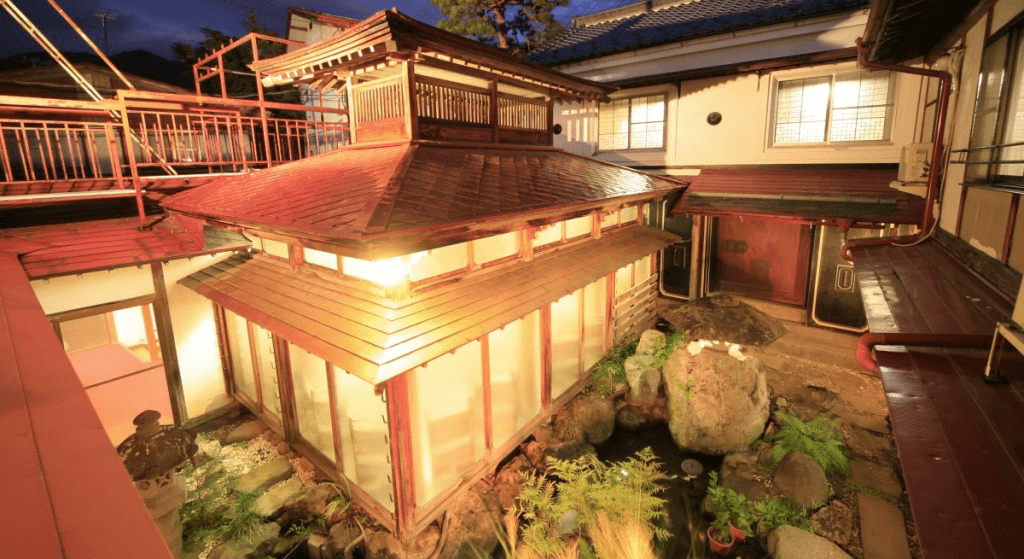
The towns are worth enjoying in their own right however most travelers headed their use Yudanaka and Shibu as a base from where to head to the Jigokudani Monkey Park – under 5-minutes drive – along with Shiga Kogen Ski Resort and the smaller resorts of Kita-Shiga Kogen – all around 30-minutes drive. Travelers also take advantage of the town’s close proximity to Joshinetsu Kogen National Park, the lower reaches of which are also only 30-minutes drive away – a journey covered by local bus services. As Japan’s fourth largest national park, Joshinetesu Kogen is a place of four seasons offering visitors endless reasons to visit throughout the year.
20 THINGS TO DO AROUND YUDANAKA & SHIBU ONSEN
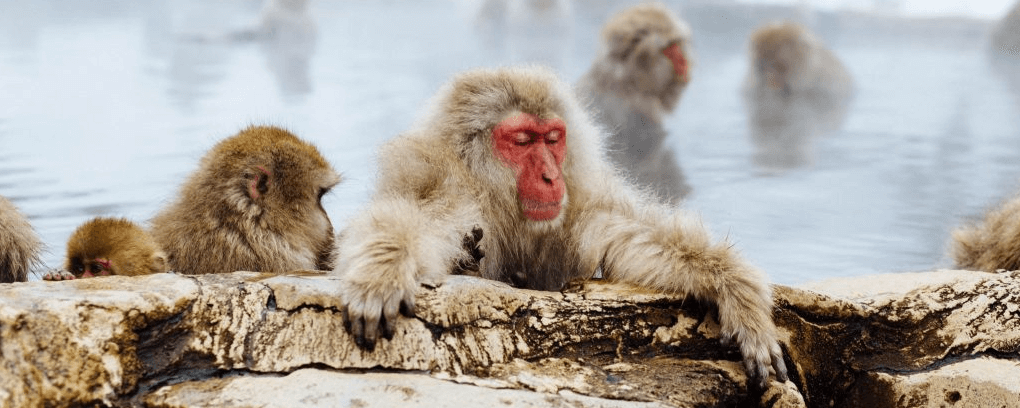
Yudanaka Onsen and Shibu Onsen offer visitors the quaint charm of traditional hot spring towns and plenty of great accommodation options, and all within easy reach of some of Nagano's most poplar and engaging attractions and activities. Here's our recommendation of the best things on offer:
1 / STAY & EXPLORE YUDANAKA / SHIBU ONSEN / all year round
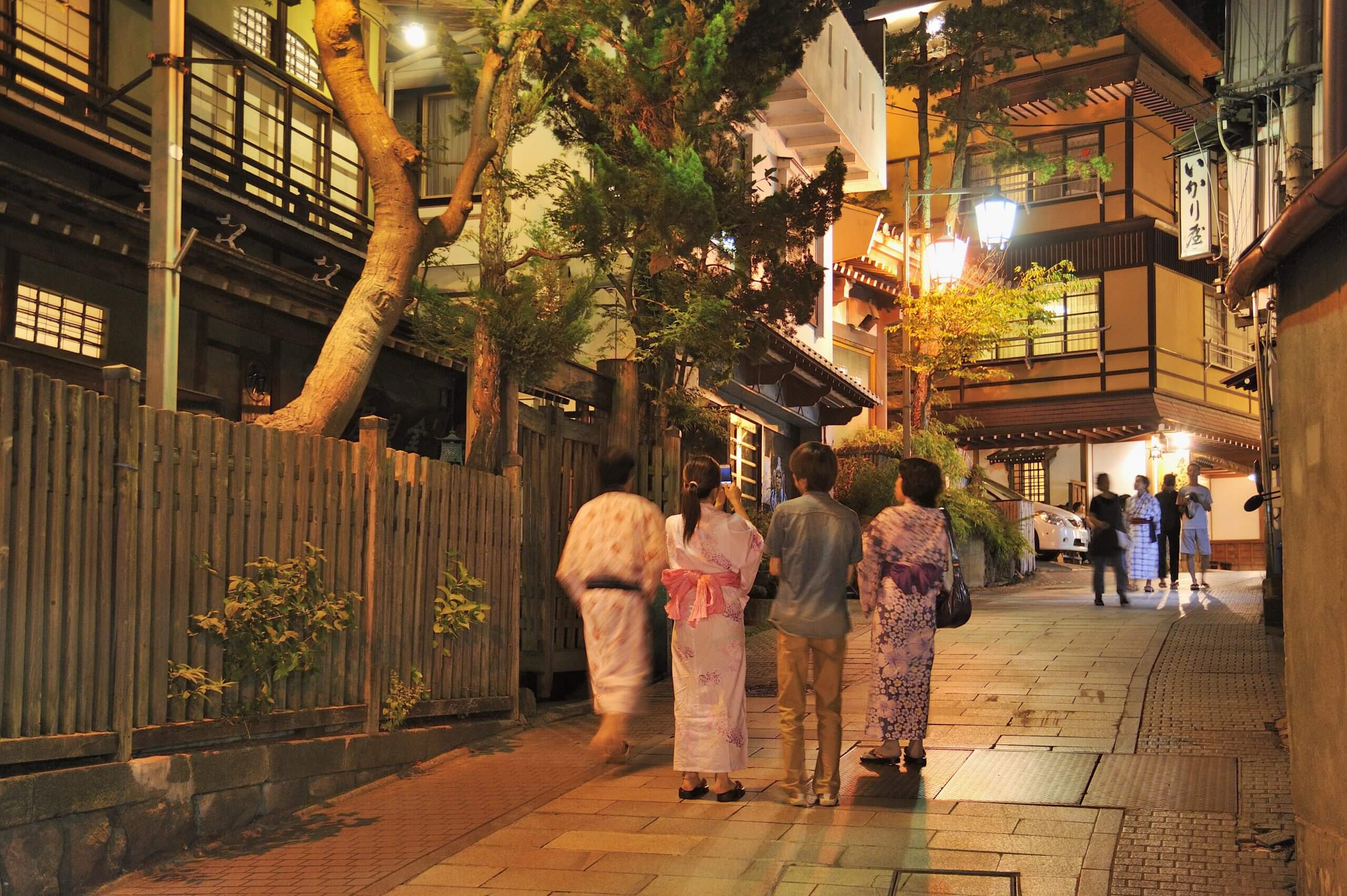
Located nearby the monkey park, the historic hot spring towns of Yudanaka Onsen and Shibu Onsen are home to many ‘ryokan’ (traditional guesthouses) and blessed with numerous hot spring sources. Shibu Onsen is particularly charming. With a history stretching back 1300 years, this quaint town is full of surprises with many ryokan family-run. Of particular note, Shibu is home to nine ‘public’ onsen however all but one is reserved for the use by hotel guests and local residents. Upon check-in, guests of any hotel or guesthouse are given a key which opens each of the nine small baths. While in Yamanouchi, make sure to enjoy one of the many restaurants and a couple of bars, known for their welcoming atmosphere, good food and of course, cold beers and warm sake. Yudanaka, Shibu and the monkey park are just three of the many destinations the wider region of Yamanouchi. Our '20 Things to do in Yamanouchi' page is a great place to start when planning your visit to Yudanaka and Shibu Onsen.
2 / SHIBU ONSEN’S 9 HEALING ONSEN / all year round
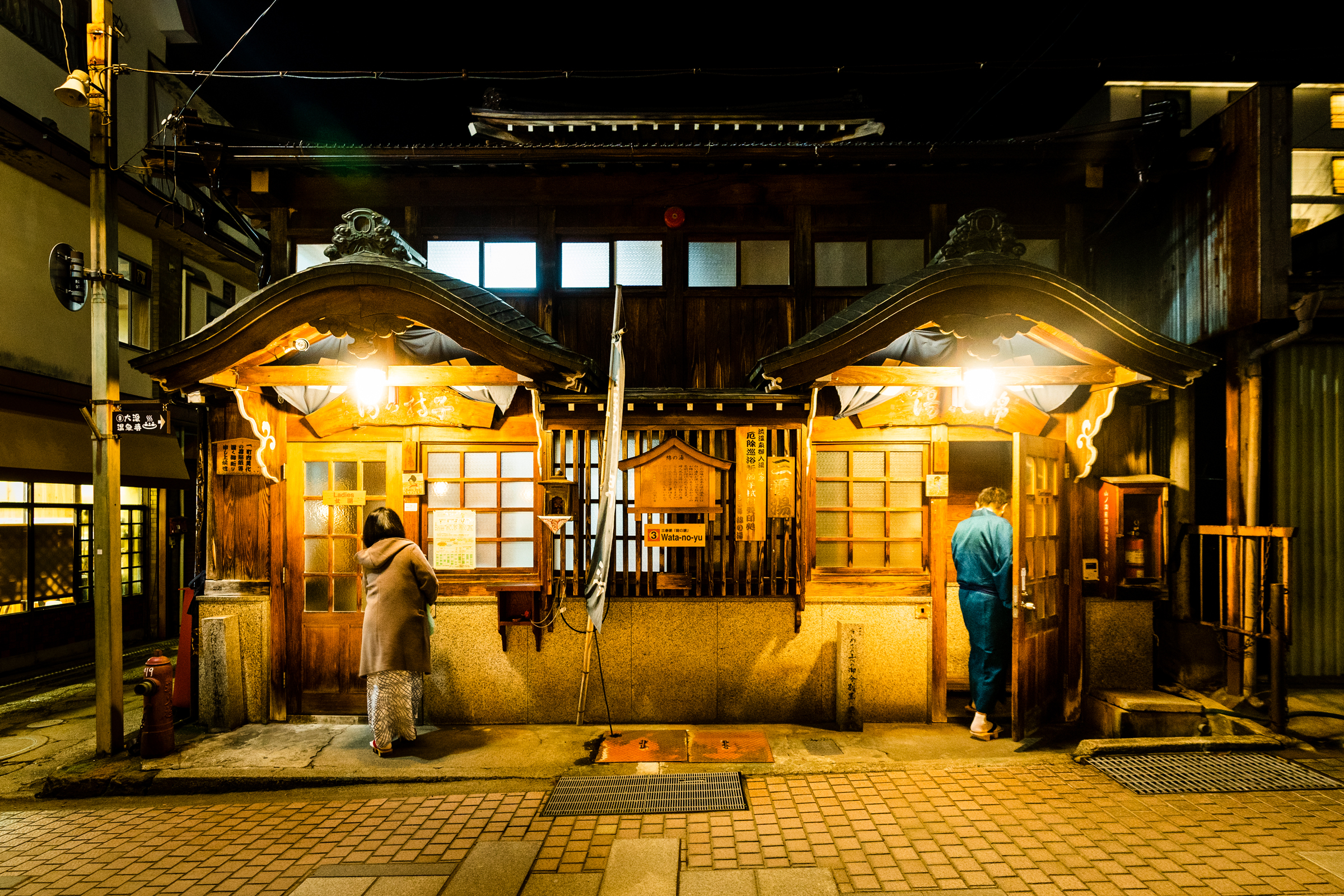
As noted above, Shibu Onsen is home to nine ‘public’ onsen however all but one is reserved for the use by hotel guests and local residents. Upon check-in, guests of any hotel or guesthouse are given a key which opens each of the nine small baths. Each has its own source of water and own (claimed) medicinal properties. Trying each of the nine onsen on ‘kyu-to-meguri’ (nine onsen tour) is an experience unique to Yamanouchi.
3 / ENJOY A TRADITIONAL ‘RYOKAN’ & ‘KAISEKI’ / all year round
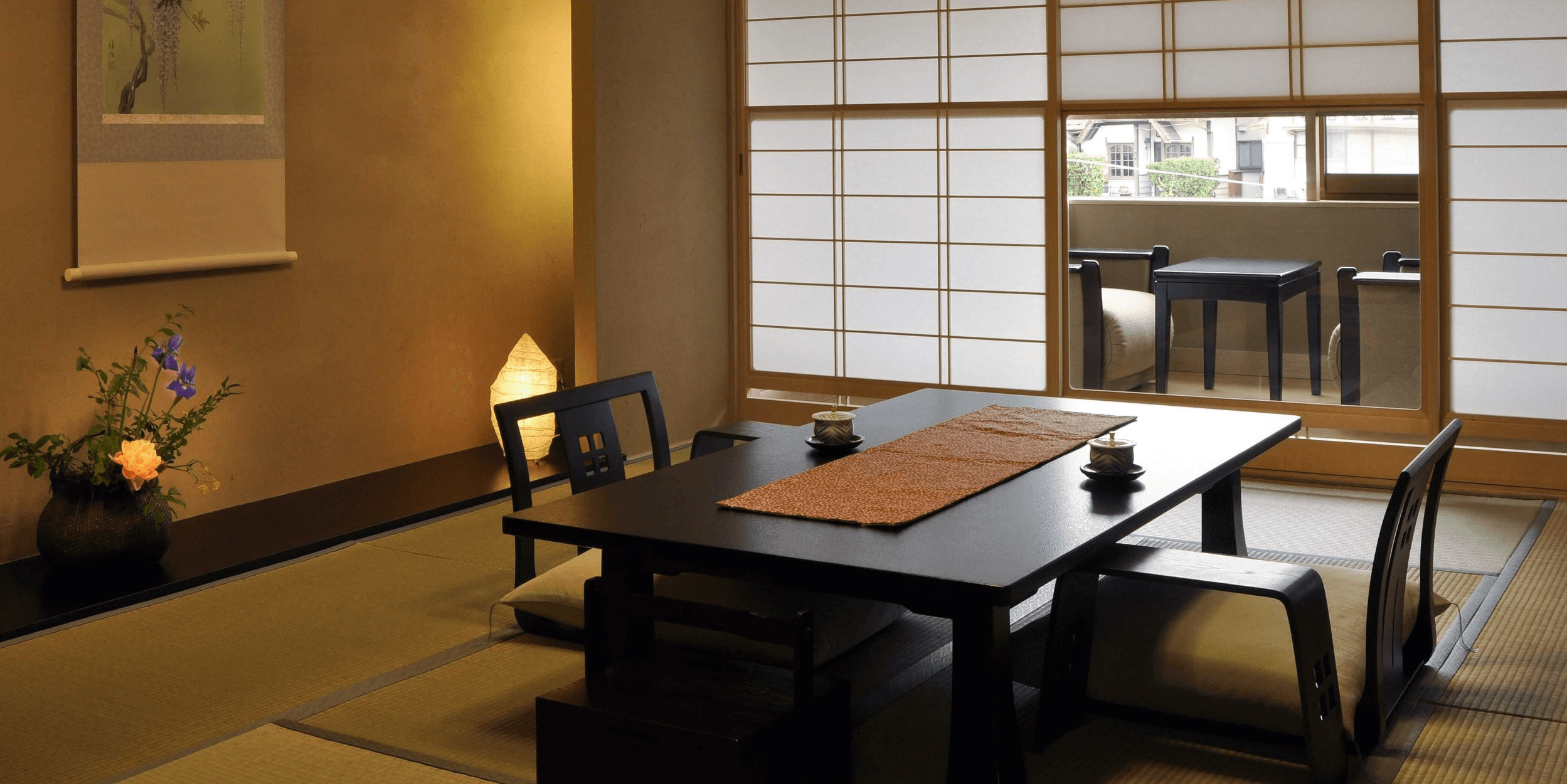
Known as ‘ryokan’ or ‘minshuku’ in Japanese, staying at a traditional guesthouse is a fantastic option for guests wanting a truly immersive experience. Yamanouchi is home to numerous ryokan and minshuku, most of which have their own onsen. Often family-run, staying at one while in the area is a great way to experience traditional Japanese service and a warm welcome. Ryokan typical reserve use of their onsen exclusively for their guests and often offer private onsen, known as ‘kashikiri-buro’, which can be arranged at time of check-in (possibly at a small additional fee).
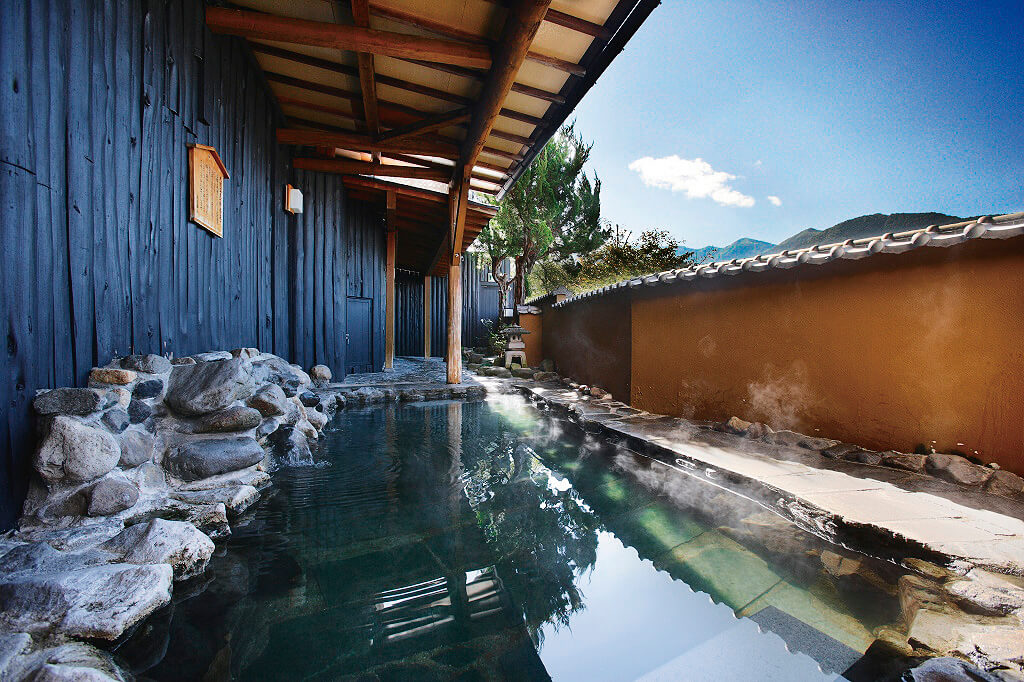
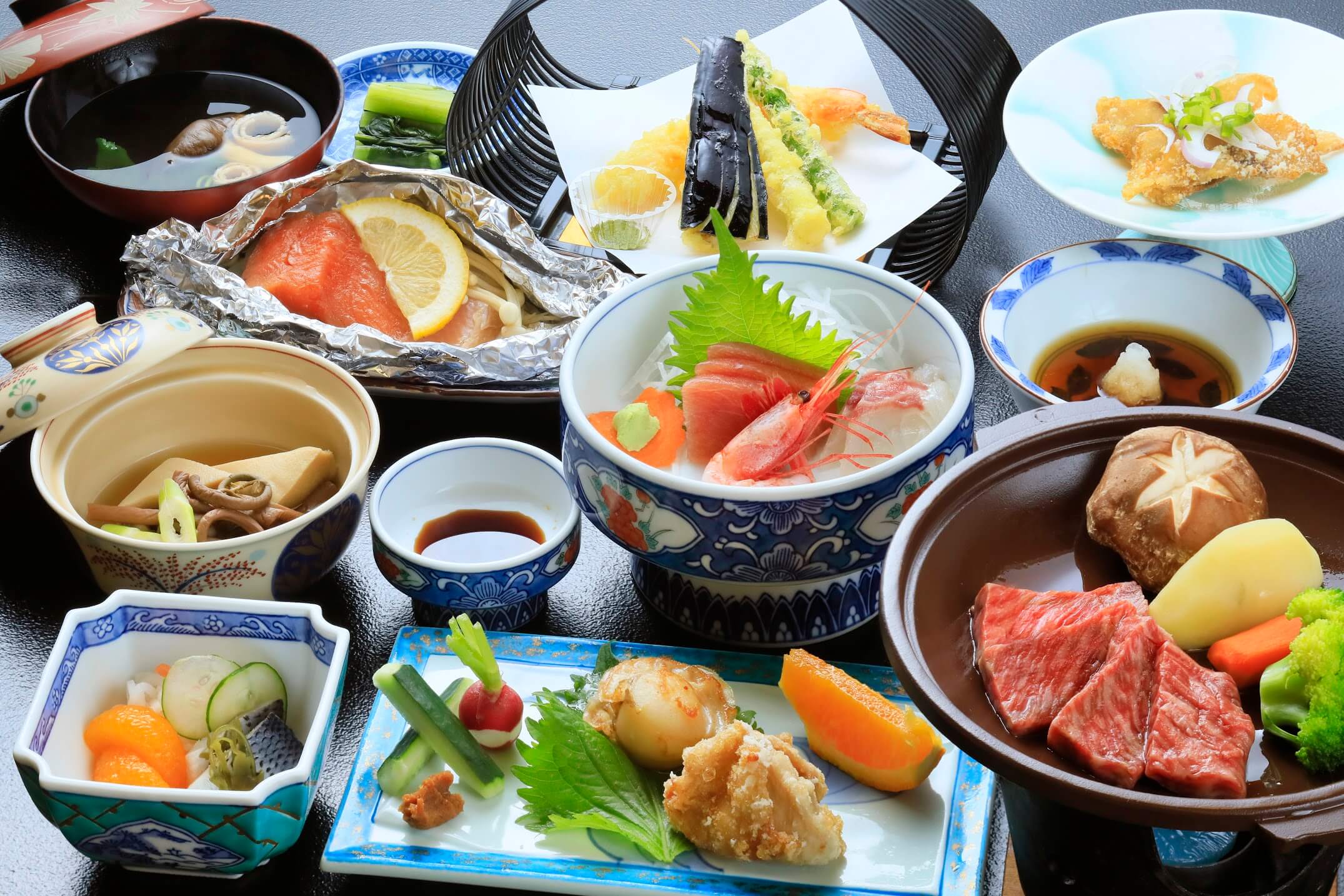
Most ryokan will also offer a traditional ‘kaiseki’ multi-course menu for dinner. While many international visitors to Japan have heard the term ‘kaiseki’, the exact meaning is often less well understood. That is for good reason. Kaiseki refers to a multi-course meal service which uses seasonal and often local ingredients to create a unique menu, as designed by the head chef. For that reason, not only is there fantastic variation between kaiseki menus between guesthouses, kaiseki dining will varying greatly at the same hotel between seasons. Each chef strives to serve their guests with the best possible ingredients and intricate dishes that profile their region and its unique cuisines and flavors, in each season. For accommodation listings, see 'Where to Stay When in Yudanaka & Shibu' below.
4 / TRADITIONAL ONSEN TOWN EXPERIENCES / all year round
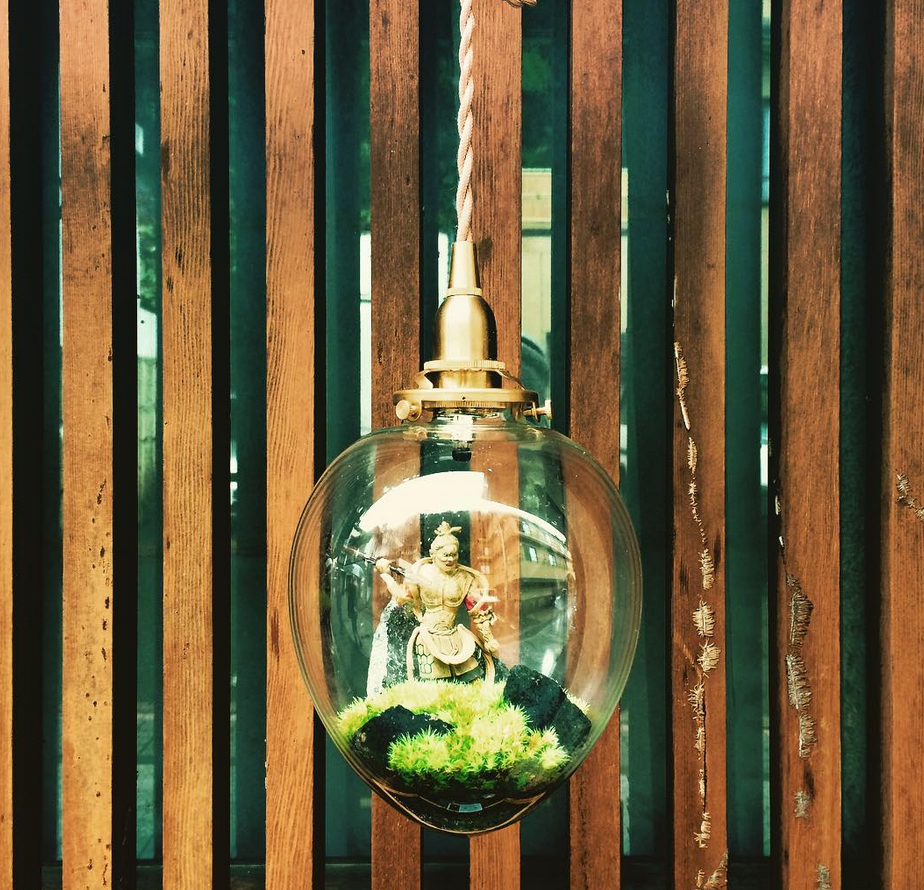
One of the basic charms of any onsen town, is the feeling they imbue of stepping back in time into a quaint and fading world. Life is slower in an onsen town and tradition holds on with determination in the face of a changing world. When visiting Yudanaka and Shibu Onsen, one of the most simple but enjoyable activities is savouring the trimmings typical of such places. Wandering the streets you will find stores selling savouries and confectionaries including ‘senbei’ and ‘manju’ – snacks synonymous with onsen towns. You will also find ‘onsen tamago’, eggs literally boiled in the onsen water and hot water sources you can drink. Shooting galleries and other traditional games can be enjoyed by guests of all ages, while you wander the streets in your ‘yukata’ (light kimono) and ‘geta’ (wooden sandals). These are the charms of onsen towns - see our 'Shibu Onsen: Simple & Fun Things to Do in a Traditional Hot Spring Town' page.
5 / JIGOKUDANI MONKEY PARK / all year round
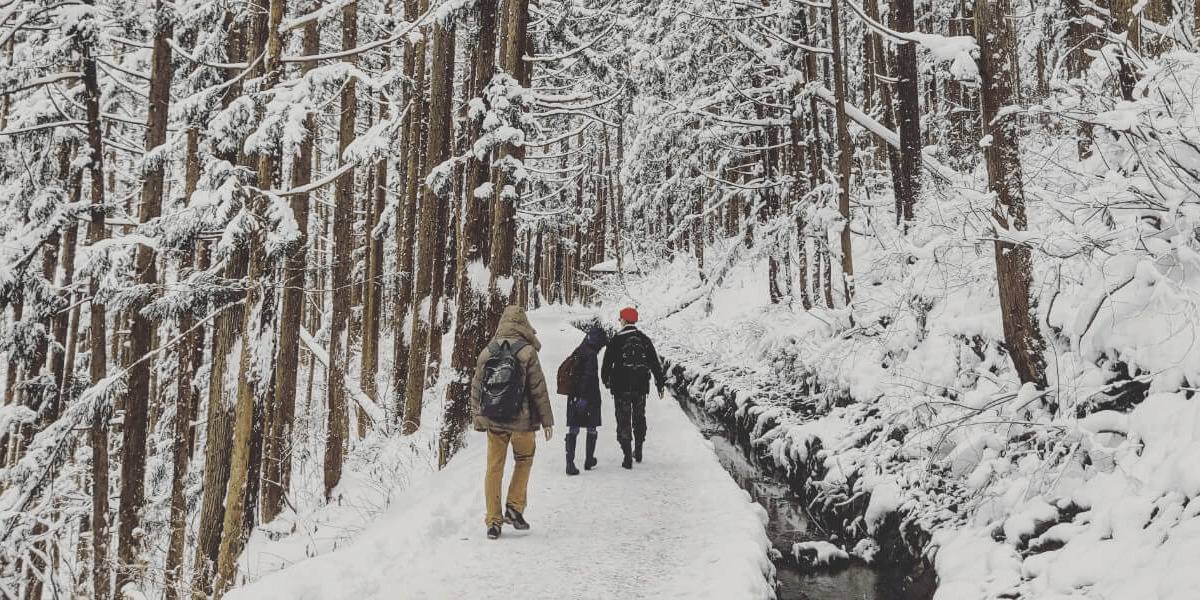
As the only troop of monkeys in the world known to naturally bathe in hot springs, the Jigokudani Monkey Park – often referred to as the Snow Monkey Park – is one of the region’s most popular destinations .With no barriers separating you and the monkeys, this is a unique chance to observe these curious creatures in close proximity and witness the unusual sight of a Japanese macaque relishing the warm thermal waters of the park.
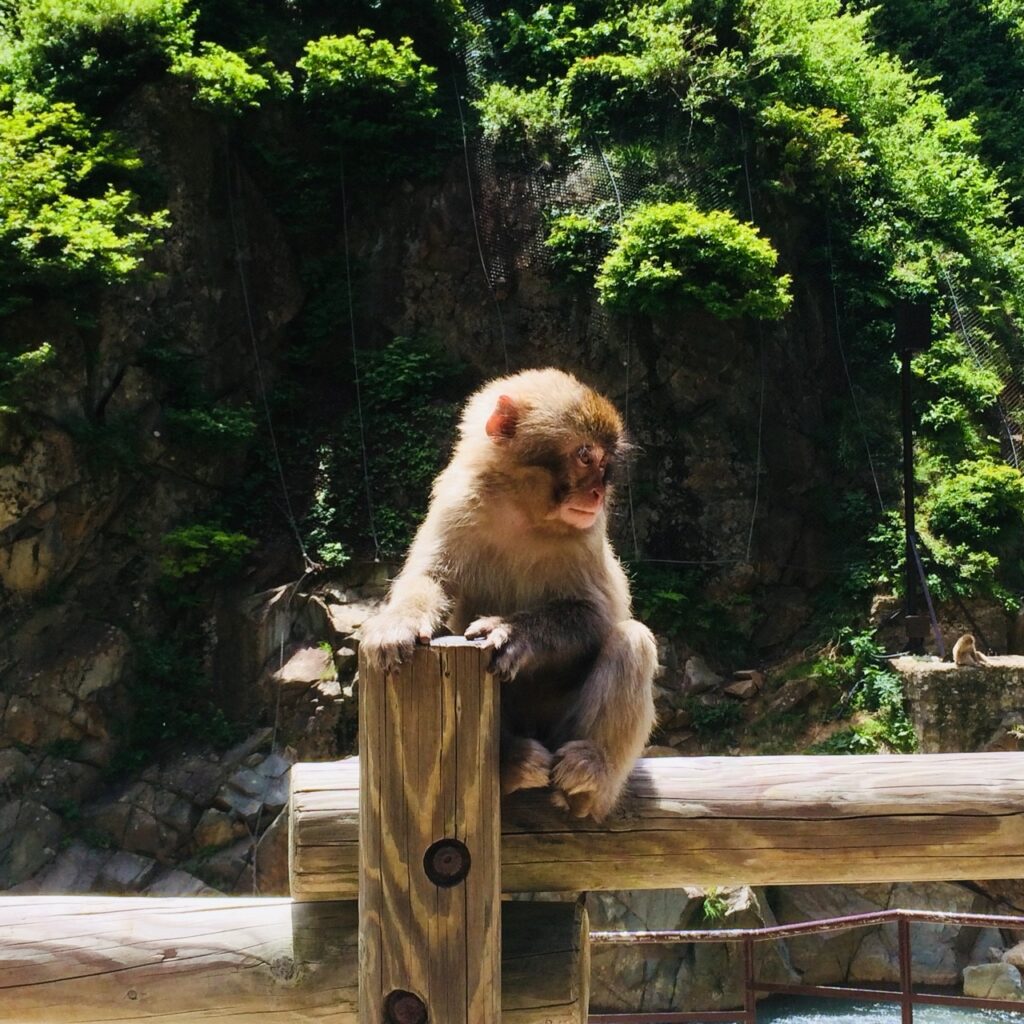
Most famous for their antics in winter, the monkeys in fact come to the park throughout the year. Spring sees the local cherry blossoms bloom and the year’s baby monkeys being born, followed by the lush, hot and humid summer and finally, the beautiful leaves of autumn; all before winter takes hold again and each season offering its own reasons to visit. The park is located under 5-minutes drive from Yudanaka and Shibu, or within walking distance – taking around 45-minutes from Yudanaka and 30-minuts from Shibu – outside of winter.
6 / GO SLOW & ENJOY KANBAYASHI ONSEN / all year round
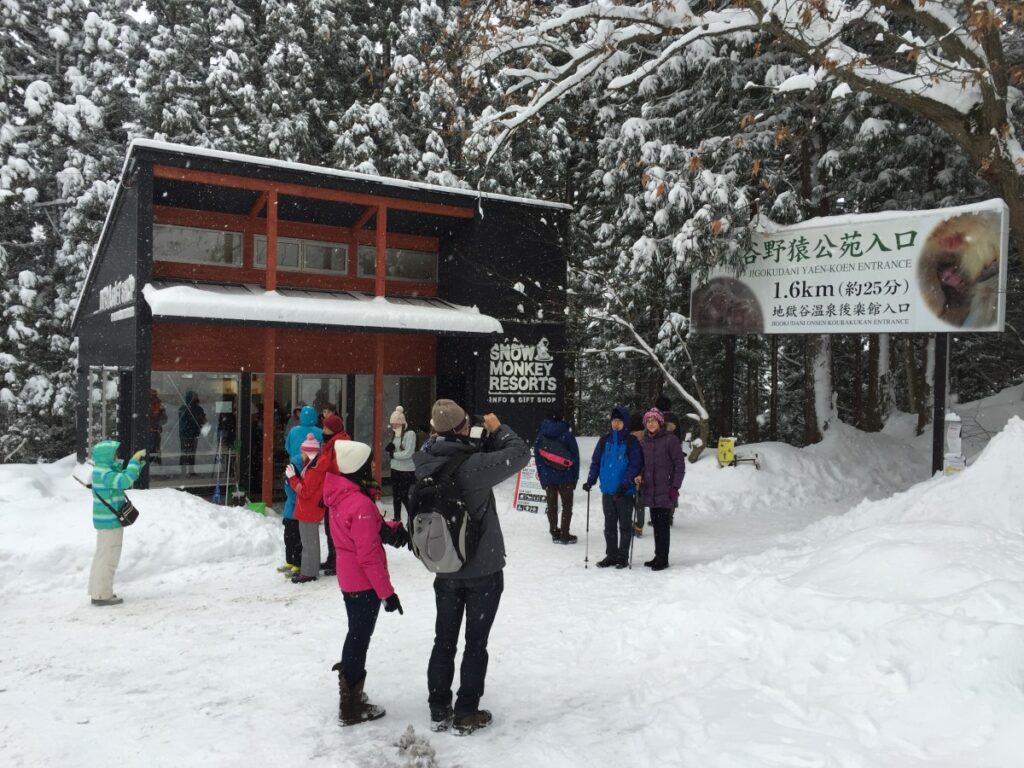
Located in the small hot spring village of Kanbayashi Onsen, the monkey park is popular as a morning or afternoon trip from nearby Yudanaka and Shibu Onsen. When there, we suggest you take it slow and enjoy a little monkey shopping or one of the restaurants within walking distance of the park. Immediately next to the entrance to the trail leading to the park, the Snow Monkey Resorts Info & Gift Shop is open from October to May. Stocking all types of monkey stuff, from official SMR merchandise, to monkey dolls, clothing and snacks, the Info & Gift Shop also rents snowboots and jackets in winter with staff on-hand to provide information and assistance during your visit.
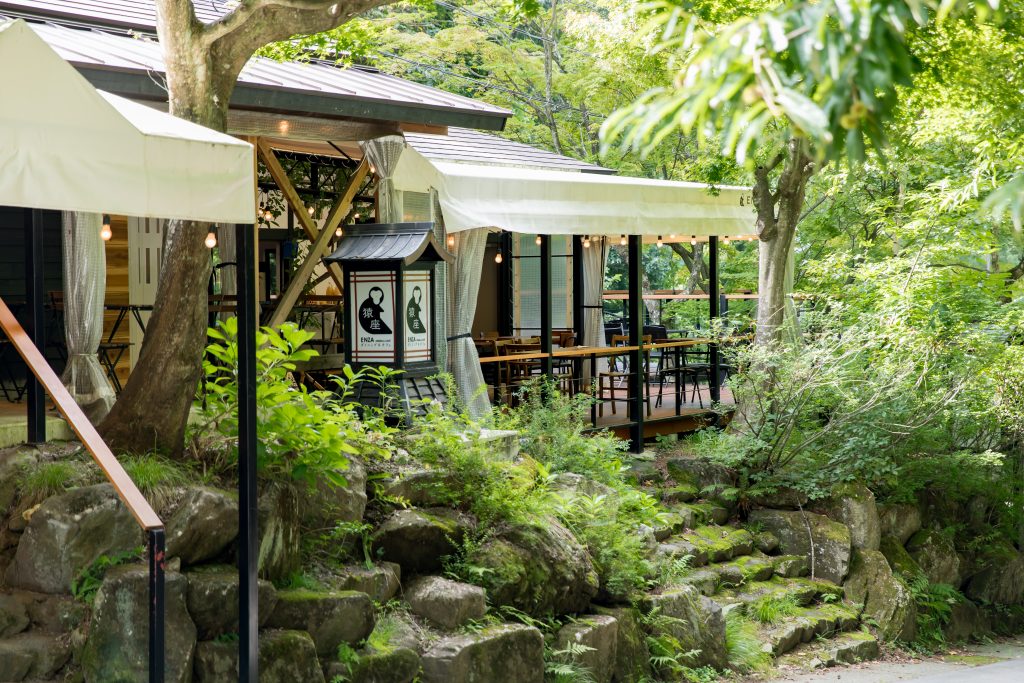
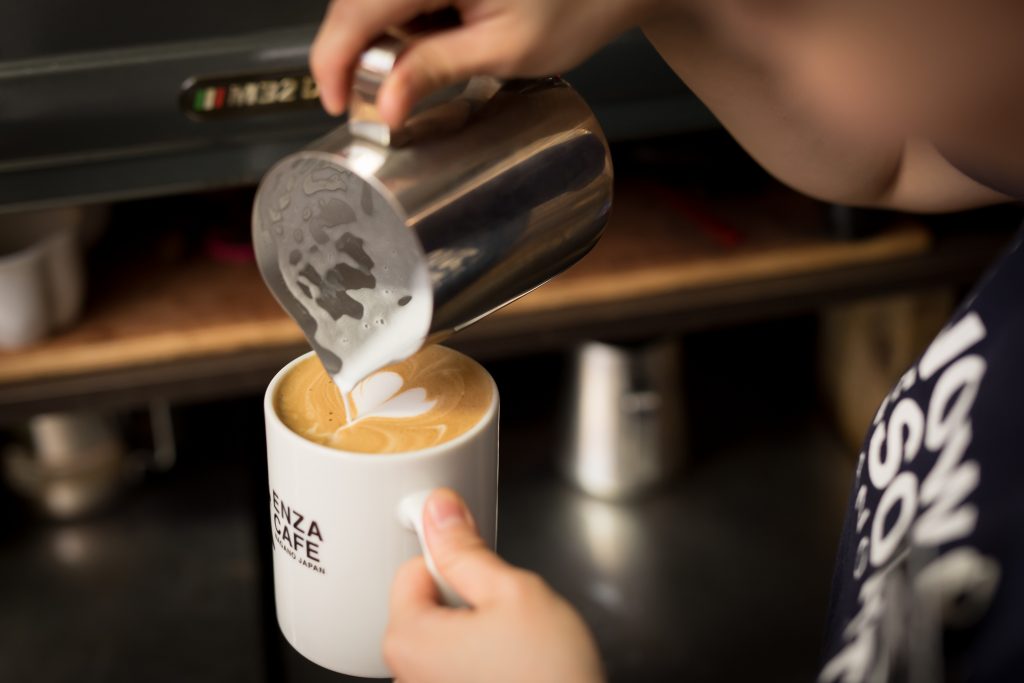
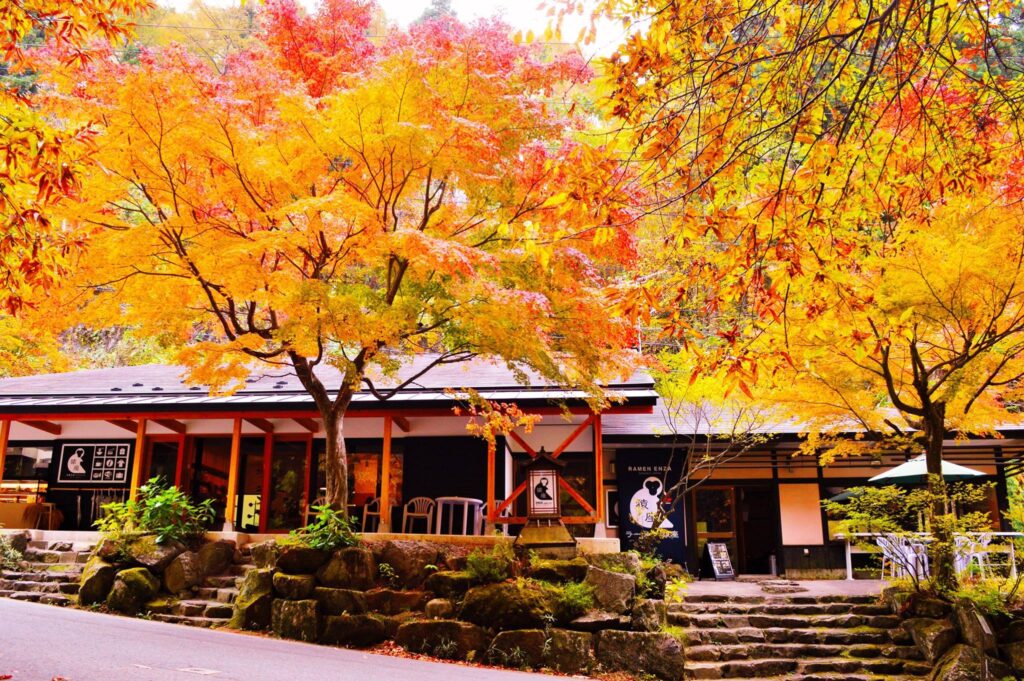
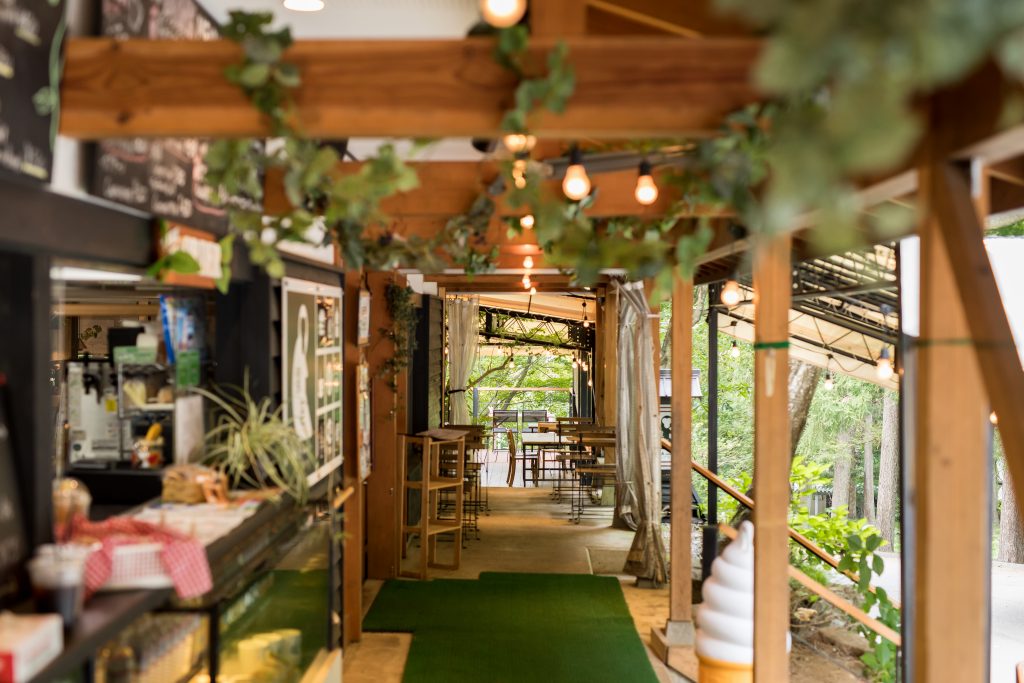
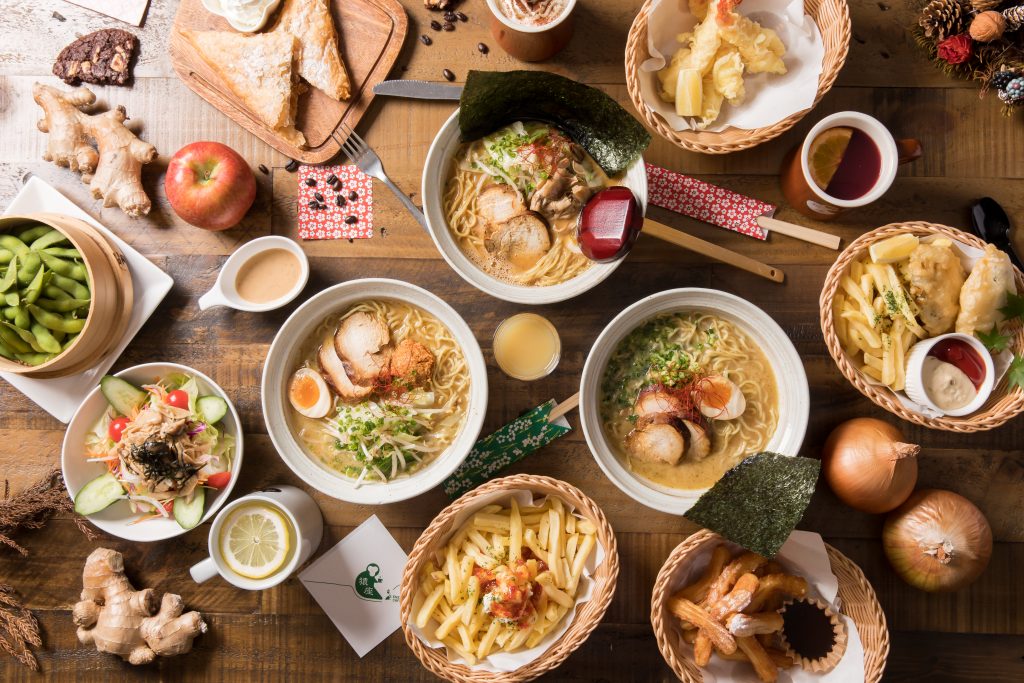
Closed from June to September, you can still get your monkey merch at Enza Café – under a minutes walk down the road. Enza Cafe serves both Japanese and Western dishes, coffee and other drinks including craft beer and more – the ideal place to grab a snack or sit down for a meal or drink before or after heading into the park. The cafe offers both indoor and outdoor seating and a relaxed, open-plan design which encourages you to take your time at the park. For visitors headed there through spring to autumn, Enza’s large terrace is an ideal spot to enjoy a meal and drink – especially beautiful in autumn as the large ‘momoji’ above the terrace turns deep red.
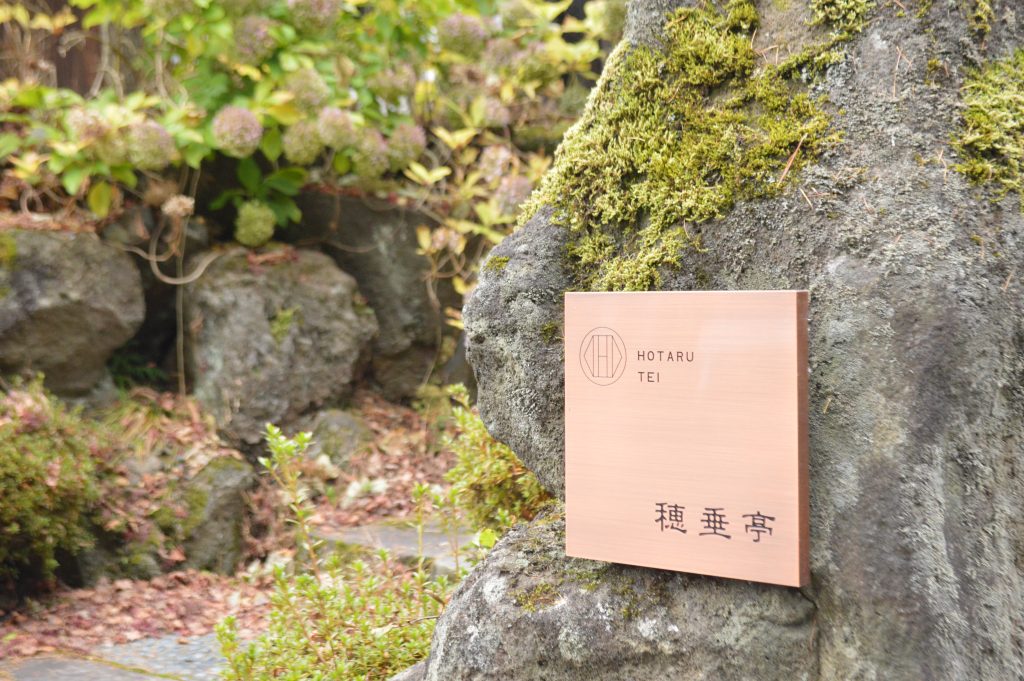
Further down the hill and nearby the bus stops, Hotarutei offers visitors the nearest fine-dining experience to the monkey park Housed in a converted 160-year old mansion, Hotarutei serves an indulgent menu of, wagyu beef, hot pot and sushi in a tranquil atmosphere. Particularly beautiful as the snow falls in winter, we recommend Hotaru-tei to any visitor looking to enjoy a more traditional Japanese meal during their time at the monkey park.
Hotarutei also contains 2 luxury villas, offering a great form of accommodation close to both the monkey park and Shiga Kogen. With each villa containing its own private onsen bath, you can enjoy the relaxing powers of the waters here to their full extent.
7 / JOIN A MONKEY TOUR / all year round

Best Selling
1-Day Tour: Snow Monkeys, Zenkoji Temple & Sake in Nagano
- Spots:
- NaganoSnow MonkeyHakuba
- Pick-up:
- Nagano CityHakuba
- Drop-off:
- Nagano CityHakuba
Operating all year round, we offer multiple tours including visits to the monkey park with the added option of including accommodation in Yudanaka and Shibu Onsen. Our 1-Day Snow Monkeys, Zenko-ji Temple & Sake Tour is available through the year and should you wish to stay in either onsen town, we can arrange that for you and drop you there at the end of the tour.
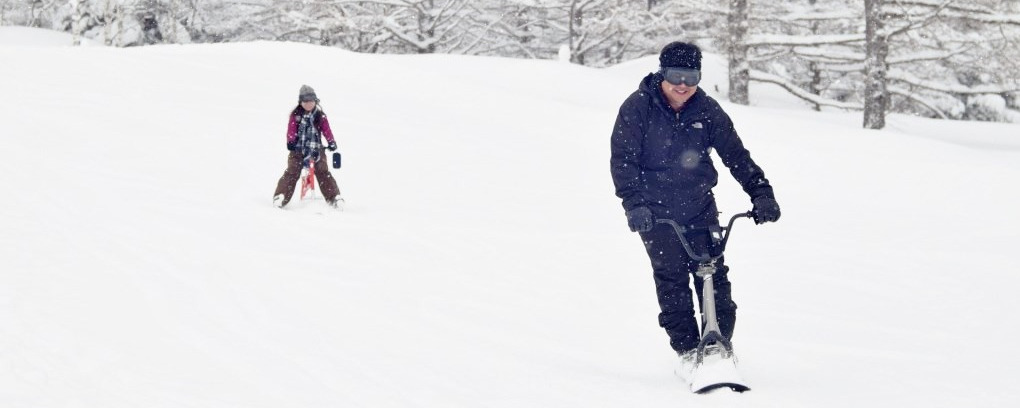
Popular
1-Day Tour: Snow Monkeys & Snow Fun in Shiga Kogen
- Spots:
- NaganoSnow MonkeyShiga Kogen
- Pick-up:
- Nagano CityYudanaka/Shibu
- Drop-off:
- Nagano CityYudanaka/Shibu
In winter, our 1-Day Snow Monkeys & Snow Fun in Shiga Kogen Tour includes the option of pickup and/or drop-off in Yudanaka and Shibu, allowing you to join the tour from those points or end your tour there. In spring, our 1-Day Snow Monkeys & Cherry Blossoms in Nagano Tour heads to the monkeys in the morning before enjoying an afternoon of blossom-viewing, and allowing you to also join the tour from both Yudanaka and Shibu. For full details of all of our monkey tours, see our ‘Tours’ main page, chose the tour you’re after and send us a message about pickup, drop-off and accommodation in Yudanaka and Shibu and we’ll get back to you asap.
8 / SKI & SNOWBOARD IN SHIGA KOGEN SKI RESORT / late-November until May
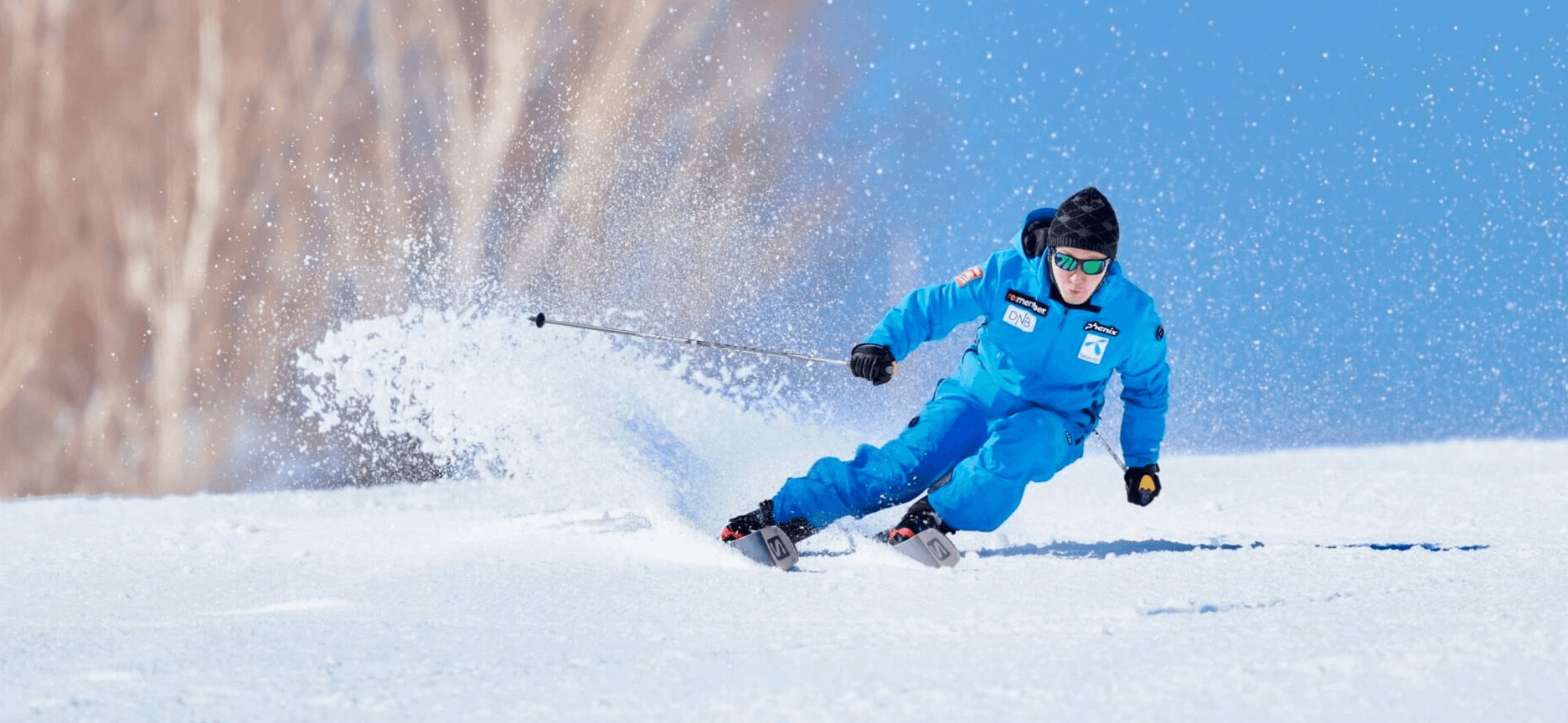

Around 30-minutes drive from Yudanaka Station, Shiga Kogen is Japan’s largest and highest ski resort. As such, Shiga Kogen offers an expansive area to explore and conquer – around 600 hectares of terrain connected by more than 50 chairlifts and gondolas – and all covered by all-mountain pass. The topography and layout ofShiga is reminiscent of European resorts, with ski runs leading into the valleys between the mountains where a seemingly endless expanse of terrain is waiting to be discovered. Shiga’s season starts earlier and goes longer with some ski areas opening as early as late-November and staying open until late-April or even into May – long after the other resorts of closed for the season. As such, Shiga offers visitors Nagano’s best spring-skiing and all within easy reach of the onsen villages of Yudanaka, Shibu and Kanbayashi.
9 / SKI & SNOWBOARD IN THE RESORTS OF KITA-SHIGA / December to April
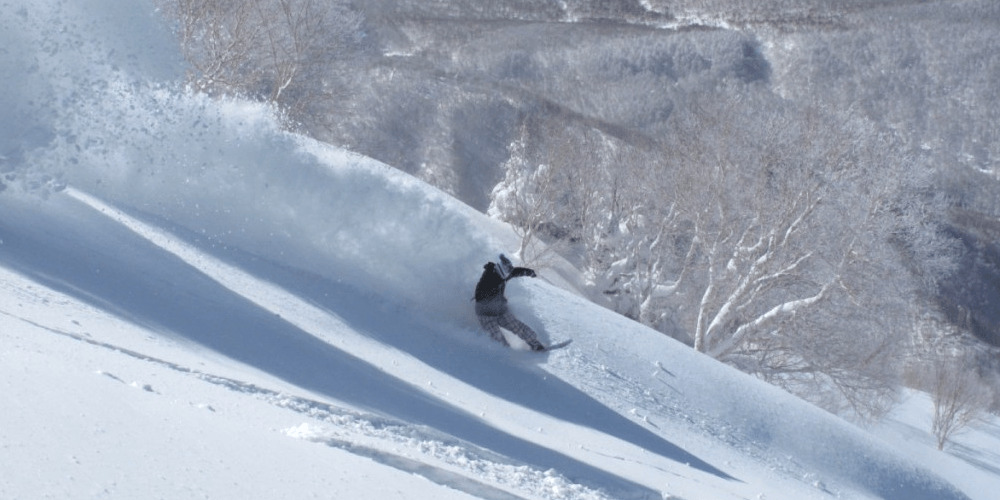
The ski resorts of Kita-Shiga Kogen offer some great powder and fun terrain, within easy reach of Yudanaka Station. Of the resorts in the area, Ryuoo Ski Park is the largest and most popular. Ryuoo has only 15 courses but a substantial 1080 metres of vertical (850-1930). Popular with locals and young Tokyo-ites, Ryuoo has a youthful atmosphere and is dominated by snowboarders. Popular with locals and young Tokyo-ites, Ryuoo has a youthful atmosphere and is dominated by snowboarders. The resort is dominated by the ropeway which ascends to the top of the resort at 1770 metres and Sora Terrace Café – a popular destination in both winter and late-spring to autumn.
10 / DAY ONSEN & FOOTS SPAS / all year round
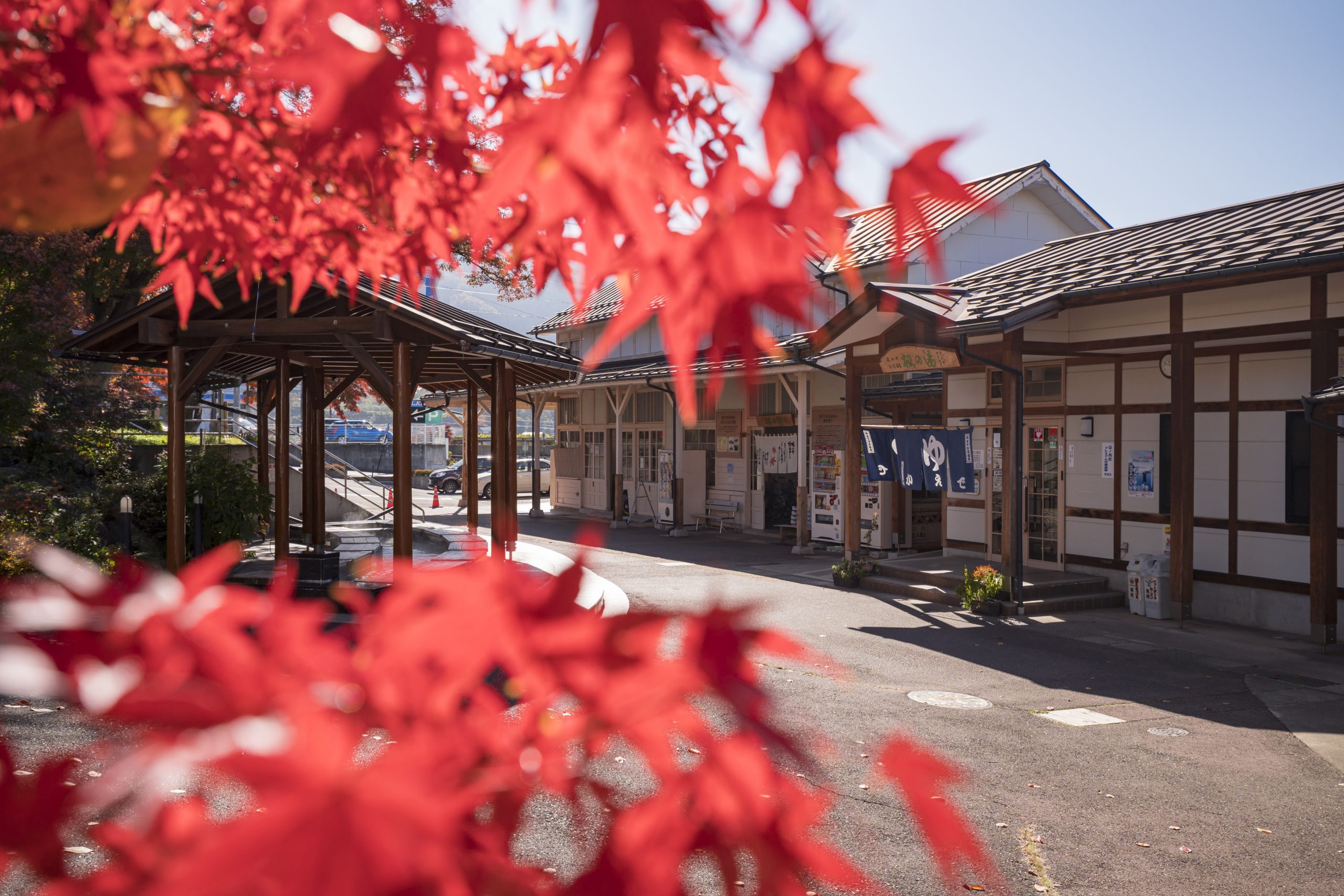
For visitors not staying overnight in Yudanaka or Shibu, or simply in need of a daytime soak, several hot springs cater to day-visitors. Kaede-no-Yu is a hot spring actually inside of Yudanaka Station. Located on the opposite side to the platform access and station waiting room, Kaede no Yu is open from 10:00 to 21:00 with a large outdoor ‘ashi-yu’ (foot onsen) for free use by anyone, while waiting for your train or just relaxing. The ninth and largest of Shibu Onsen’s ‘public’ onsen, called the ‘O-yu’ can be used between the hours of 10:00 and 16:00. For entry and tickets, you need to first visit tourist information. Once inside, you will discover a very traditional wooden bathhouse with pleasant, silky water. Directly above the O-yu, is one of Shibu’s two foot onsen, free for use by anyone and open all times of day. The other, and larger of the two, is located at the top-end of town nearby Onsen-ji Temple.
11 / ENJOY A MEAL AT GOEN / all year round
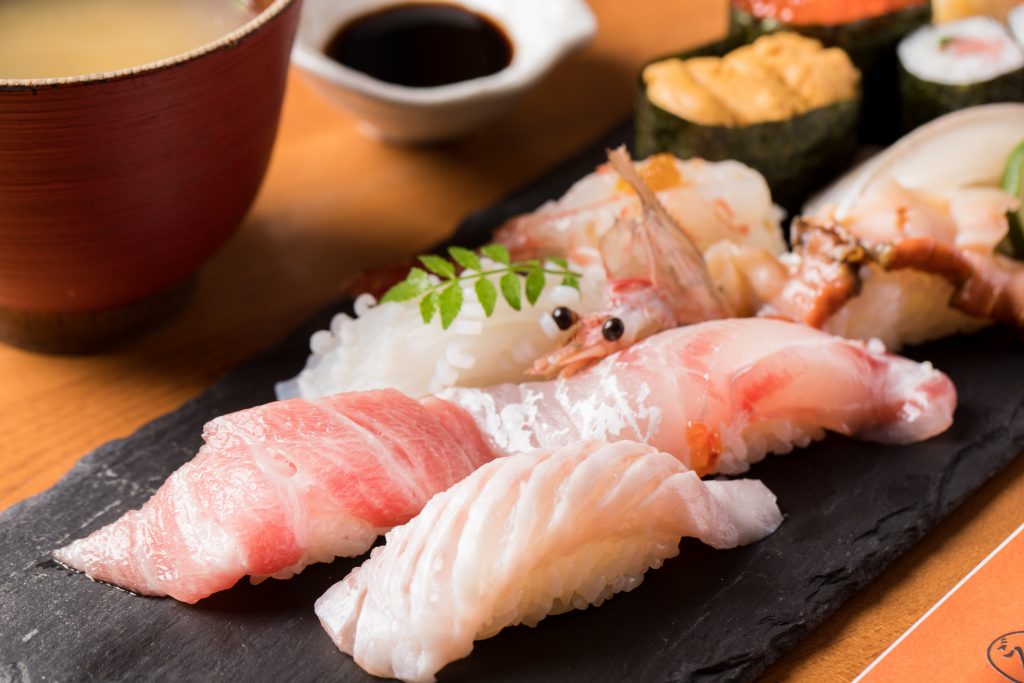
Located directly across from Yudanaka Station, Japanese Dining GOEN is a great option when looking for a warm welcome, tasty meal or refreshing drink. Popular with both visitors and locals, GOEN offers a mixed menu of Japanese and Western favourites, indoor and outdoor seating, and English-speaking staff. Serving great sushi, sashimi and other Japanese favorites including yakitori, tempura, wagyu and soba noodles, GOEN’s menu is built around taste. Also serving Western cuisine with wide and varied drinks menu and assorted desserts, cakes and coffee there’s something for everyone at this great little local.
12 / CHERRY BLOSSOMS & BABY MONKEYS / April to June
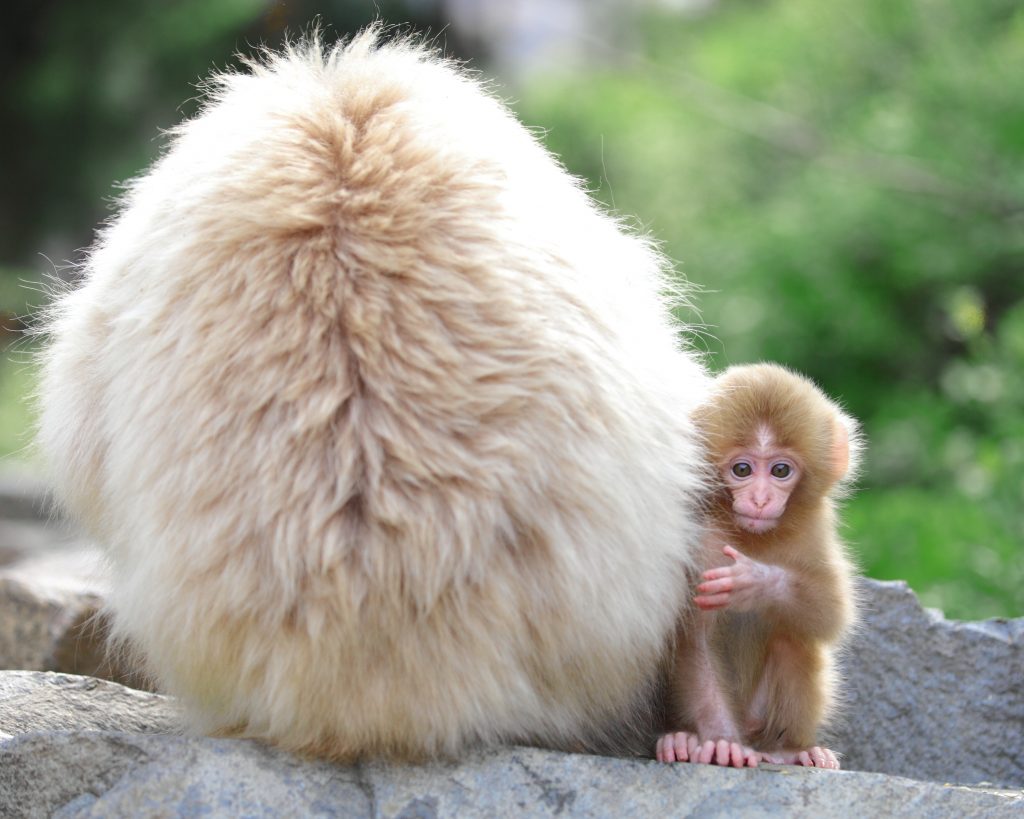
Spring sees the snow melt in Yudanaka and Shibu and an increasingly green and lush landscape emerge, heralded by the blooming of the local cherry blossom trees. Known as ‘sakura’ in Japan, wandering below the pink and white canopy of the cherry blossoms in spring is perhaps the quintessential Japanese experience. Yamanouchi’s higher elevation means that the bloom is later most other areas, typically occurring from mid-April onward.
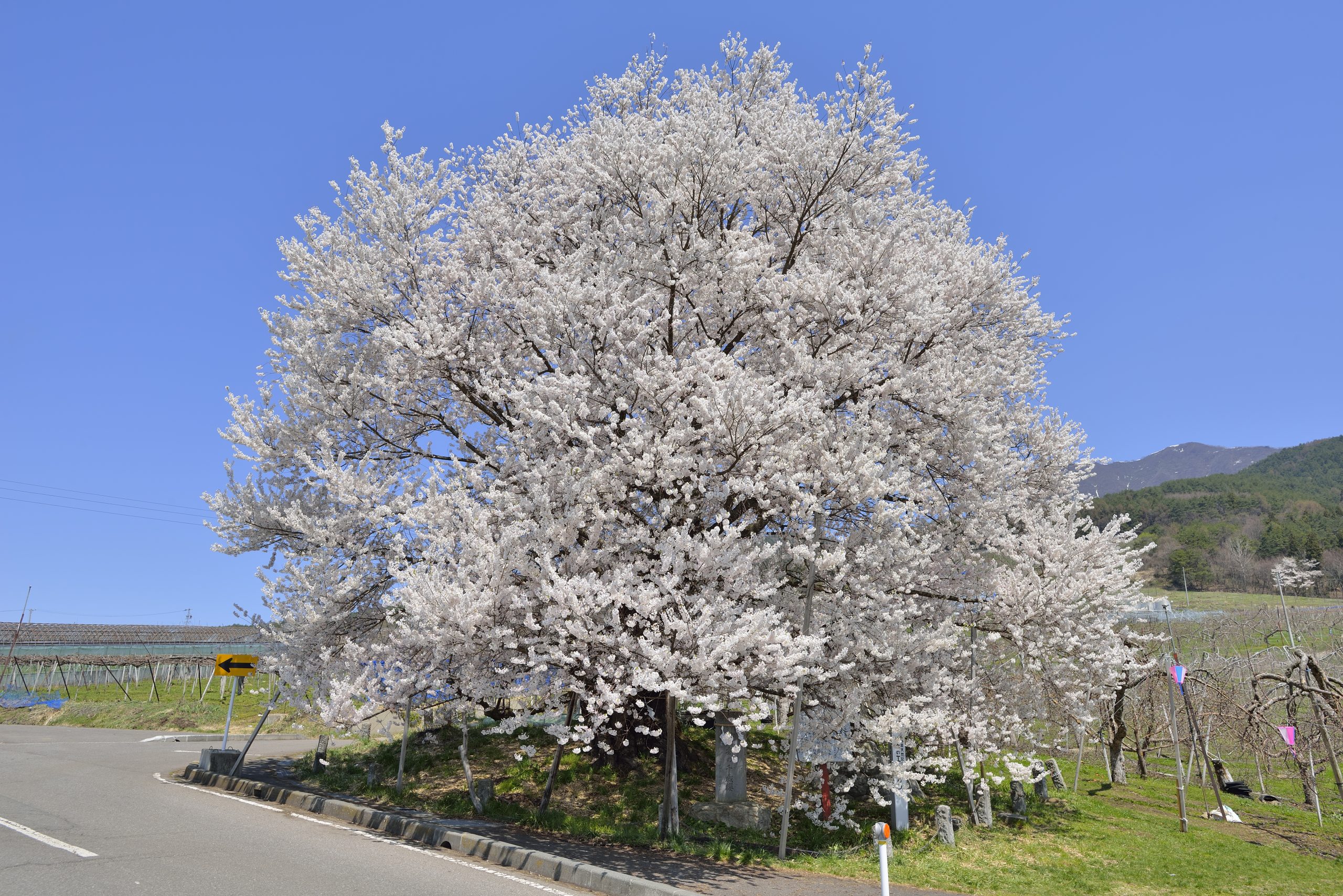
Notable spots to see the blossoms in Yamanouchi include the ‘Kodaizakura’ - pictured above - which is estimated to be over 850-years of age yet retains a glorious bloom each spring. One of several historic trees located in the Uki Ward of Yamanouchi, the trees in this area are best accessed by car or taxi, and once there explore the area on-foot. The World Peace Kannon – discussed above – is another renowned blossom spot and one that can be reached on-foot from both Yudanaka Onsen and Shibu Onsen, along with the banks of the Yomase River which runs past the two onsen towns.
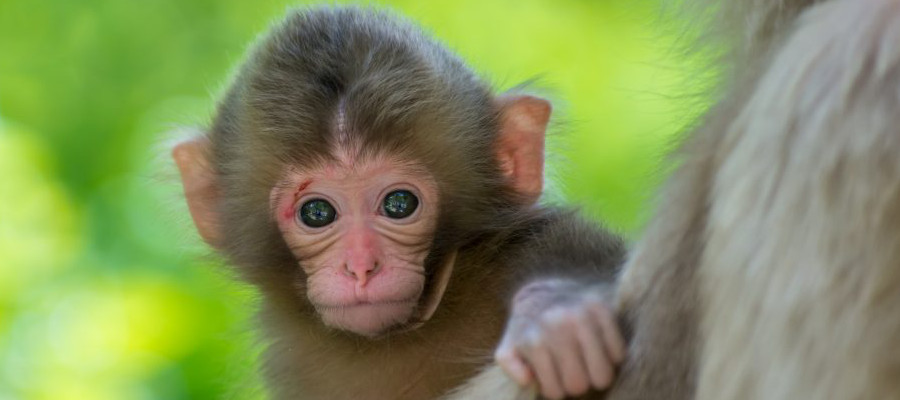
Popular
(Spring Only) 1-Day Tour: Snow Monkeys & Cherry Blossoms in Nagano
- Spots:
- NaganoSnow Monkey
- Pick-up:
- Nagano City
- Drop-off:
- Nagano City
Around the same time, the expecting mothers of the Jigokudani Monkey Park will begin to give birth to the year’s adorable babies. Witnessing these awkward bundles of fur, with their long limbs and glassy eyes, begin their first stumbling exploration of the world is a true highlight of spring. Typically born from mid-April until mid-June, the baby monkeys grow in confidence quickly, and by summer and scurrying around the park trying to keep up with their brothers, sisters, and cousins – one of the best times to visit the monkey park!
13 / JOSHINETSU KOGEN NATIONAL PARK / best: June to November

Under 30-minutes drive from Yudanaka and Shibu, an accessible using local bus services from both towns - Joshinetsu Kogen National Park is the fourth largest national park in Japan. An expansive landscape that boasts multiple ski areas – including Shiga Kogen Ski Resort - within its boundary, fantastic hiking trails, a wealth of alpine flora and fauna, and on its western border, the Jigokudani Monkey Park. While the park can be enjoyed all year round, mid-November to April sees heavy snow blanket the area as the ski resorts enjoy Nagano’s longest seasons. If you want to hike or explore by car, best to do so from June to early November when the snow will mostly have melted. Within the national park, Shiga Kogen Highlands is a recognised UNESCO Biopshere Reserve – a landscape of rough terrain, mountain ranges – including multiple peaks rising over 2000 metres above sea level – and forests with ponds, swamps, high-moors, and rivers, making it an ecologically important environment in which a wide variety of animals, plants, and insects coexist. The highlands boasts multiple gondolas and chairlifts, with several operating throughout the year and opening fantastic view points and hiking for visitors from June until November.
1-Day Tour from Nagano and Karuizawa: Unwind in Kusatsu Onsen
- Spots:
- NaganoKaruizawaKusatsu
- Pick-up:
- Nagano CityKaruizawa
- Drop-off:
- Nagano CityKaruizawa
If you are looking to visit the Joshinetsu Kogen National Park, why not join one of our tours? With pick up from Nagano Station and Karuizawa Station this dynamic tour includes a visit to one of Japan's most scenic roads, high in the Joshinetsu Kogen mountains. Other highlights inlcude Kusatsu, Japan's most renowned Onsen town, and the Onioshidashien, a beautiful area of strangely shaped dried lava on the slope of a volcano.
14 / CHAIRLIFTS & GONDOLAS OF SHIGA / (almost) all year round
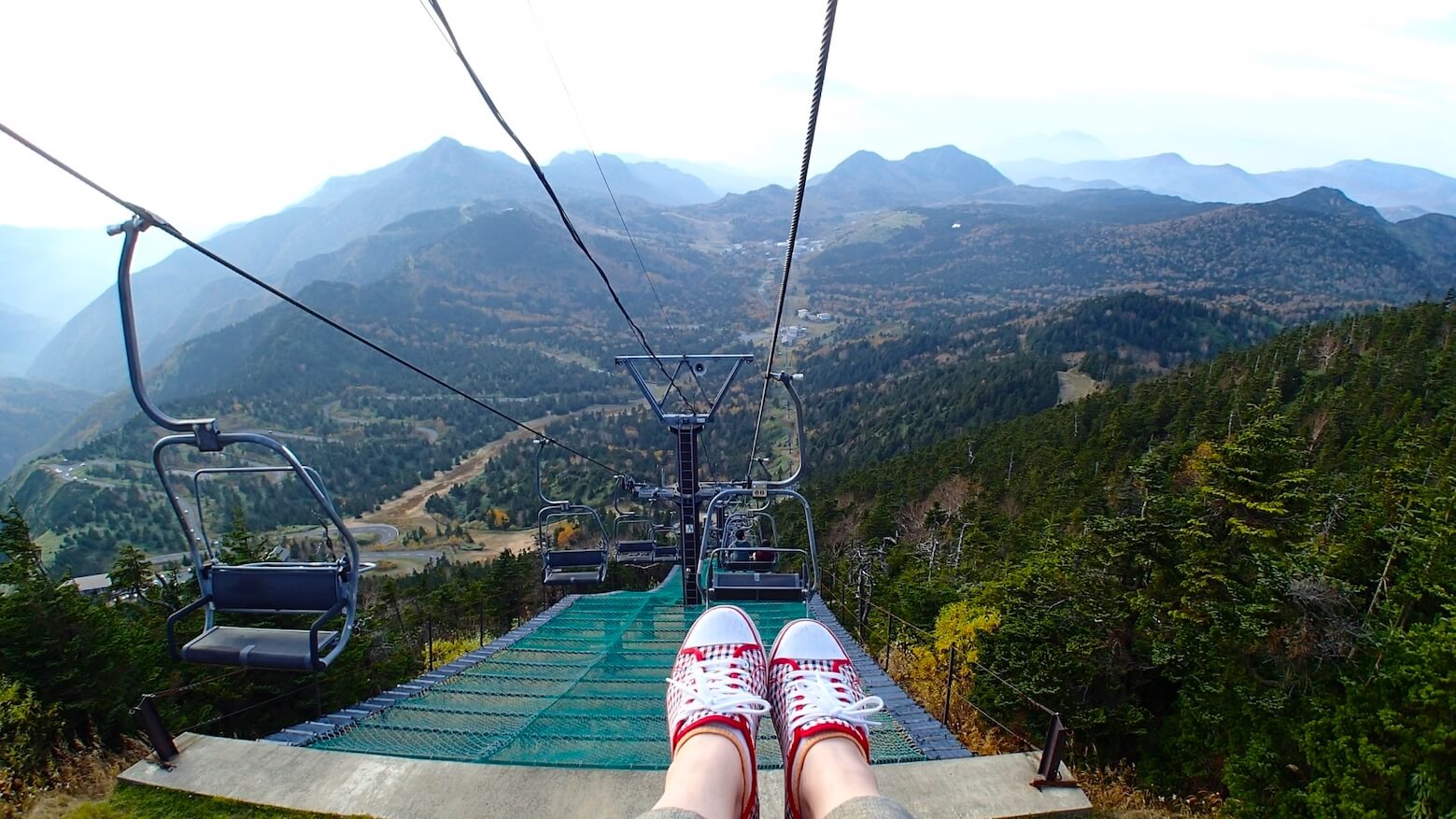
After a short break following the end of the ski reason, several chairflits and gondolas will begin to operate again and in doing so, provide access to some of the higher reaches of the mountains, leisurely walking trails, and outstanding views. Located in Shiga Kogen, the Higashidateyama Ropeway transports passengers to 2008 metres above sea level to enjoy panoramic views, a café and alpine botanical garden. Small gondolas allow passengers to ride by themselves or just with family and friends. Also in Shiga Kogen and rising to an elevation of 2307, the Yokoteyama Chairlift operates from late-May until the end of October. At the top, visitors have a panoramic view back for Shiga Kogen and toward the North Japan Alps. A café and viewing deck awaits up top, with walking trails leading back down or further into the national park.
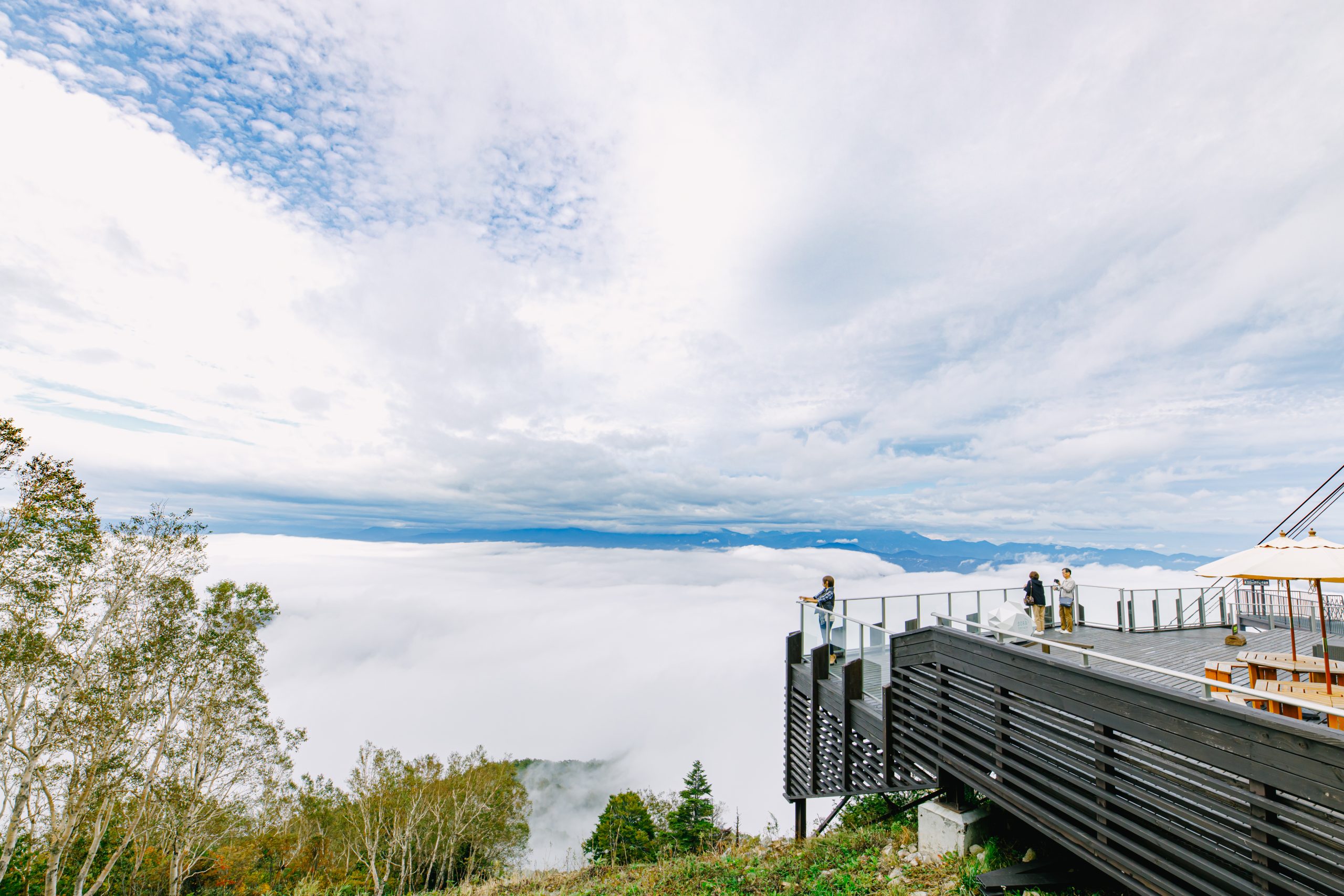
The Skyland Express Ropeway is located in Kita-Shiga Kogen and operates for most of the year including from May until November. Rising to the upper station at 1770 metres above sea level the large gondola can carry more than 160 people and on a clear day, affords fantastic views of the valley below and the mountains of the North Japan Alps. Located next to the upper gondola station, Sora Terrace is an observation deck and café – pictured above – offering panoramic views of the surrounding landscape.
15 / HIKING IN SHIGA KOGEN / June to November
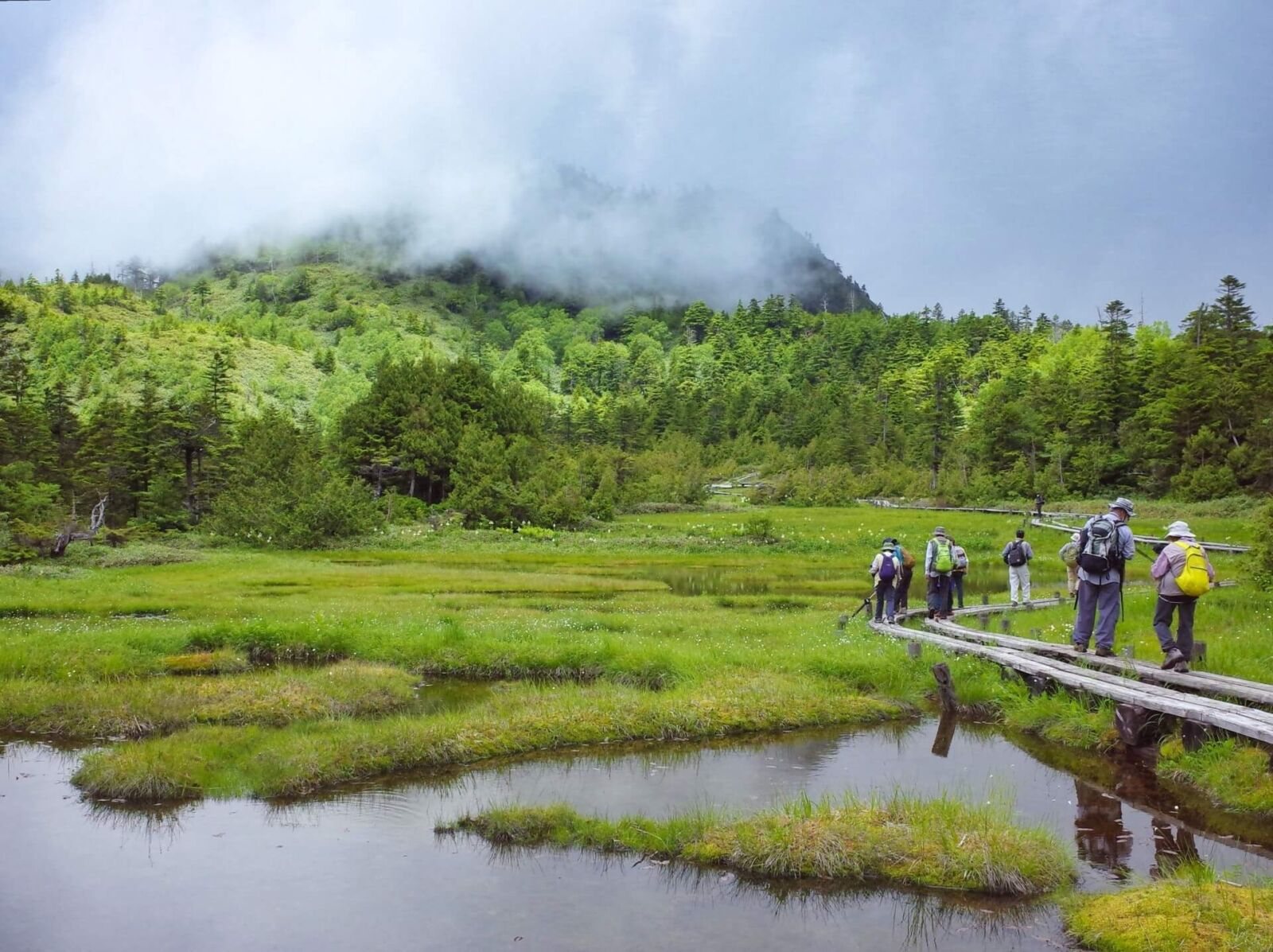
Blessed with high mountain peaks and deep snow in winter, Shiga Kogen offers some of Nagano’s most enjoyable hiking from spring to autumn. The expansive national park and smaller Shiga Kogen reserve have numerous hiking trails through mixed landscape of woodlands, swamps, ponds and high moors is criss-crossed by an array of hiking trails – from well-maintained sealed and elevated walkways to less readily identifiable trails leading deep into the forest and toward the mountain peaks.
16 / EVENTS & FESTIVALS / best: July to August
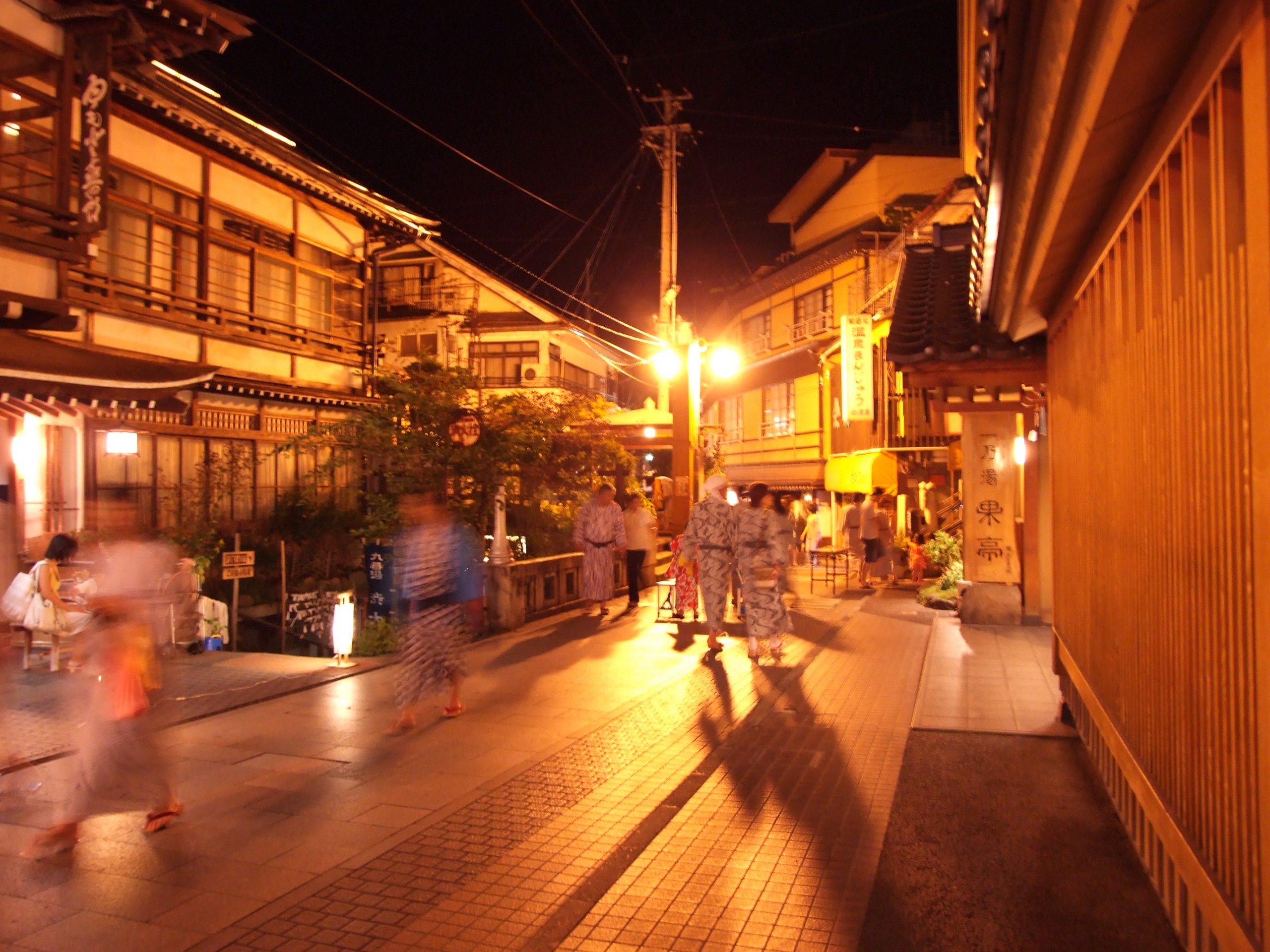
Known as ‘matsuri’ in Japanese, festivals play an important role in the health and well-being of local communities, and joining-in on the fun is one of the most enjoyable experiences you can have in Japan. The Yudanaka Summer Festival sees nightly events take place around the Yudanaka Station area from late-July until mid-August. There is a strong emphasis on community, with all events and activities arranged and conducted by local residents including ‘taiko’ (traditional drum_ performances, school bands, outdoor karaoke and ubiquitous game and food vendors found at Japanese festivals. Taking place from early to mid-August each year, the Shibu Onsen Summer Festival is a simple but fun local event, that sees the local community enjoying traditional games and activities in the streets of the famous hot spring down. ‘Bon O-dori’ is danced in the streets with everyone welcome to join in the fun each evening.
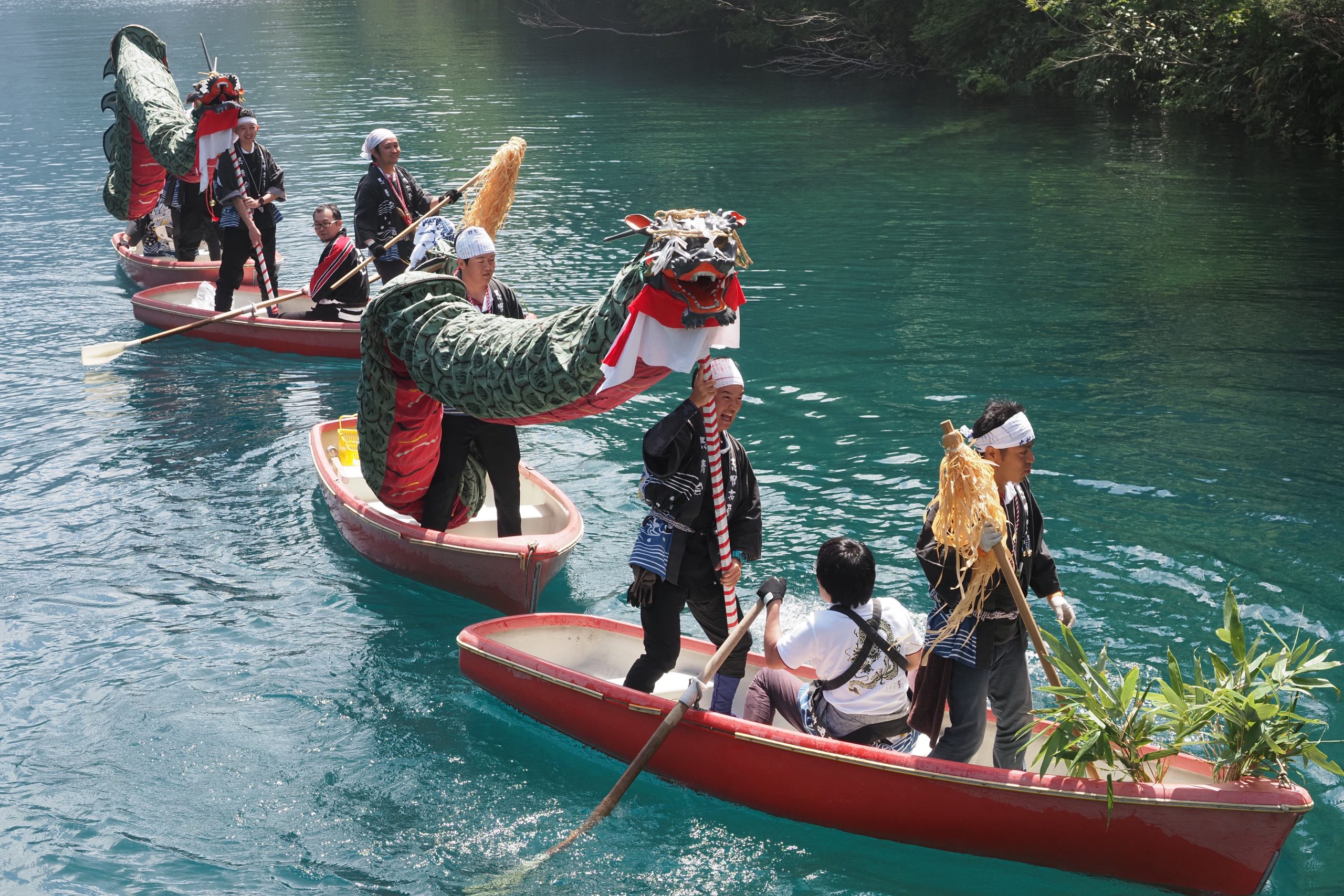
Taking place in the third week of August, the ‘Daija Festival’ is held in nearby Shiga Kogen and commemorates the legend of a serpent that is said to live in the waters of Onuma Pond. Having fallen in love with a beautiful princess, the serpent would disguise himself as a samurai but once discovered, Kurohime’s father forbid the relationship and tried to trick the giant snake. Let’s just say the story doesn’t end well… culminating in the serpent destroying her father’s castle and Kurohime throwing herself into the pond. This low-key local festival takes place of three days and includes traditional performances and fireworks.
17 / FRUIT-PICKING / July to November
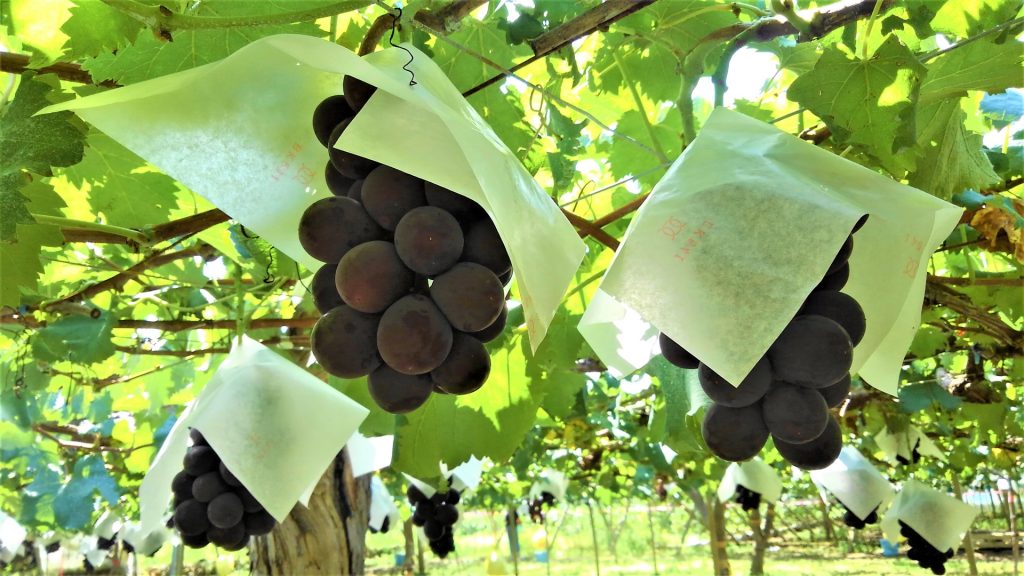
Blessed with an ideal climate for growing countless varieties of fruit and vegetables, Nagano is most famous for its apples and grapes, both of which grow to impressive size and deliciously flavorful in the higher elevation of Yamanouchi’s orchards. Growing many varieties of apples including well-loved Fuji and San Fuji types, the pronounced temperature difference between day and night promotes the growth of delicious apples which you can pick and enjoy for yourself and several of the region’s many orchards. This leisurely activity is suitable for all ages and is particularly popular with families, whose children relish the rare chance to be among orchards and choosing their own delicious apples directly from the tree. For details, see our ‘Summer Activities in Yamanouchi’ page.
18 / ENJOY THE AUTUMN LEAVES / October to November
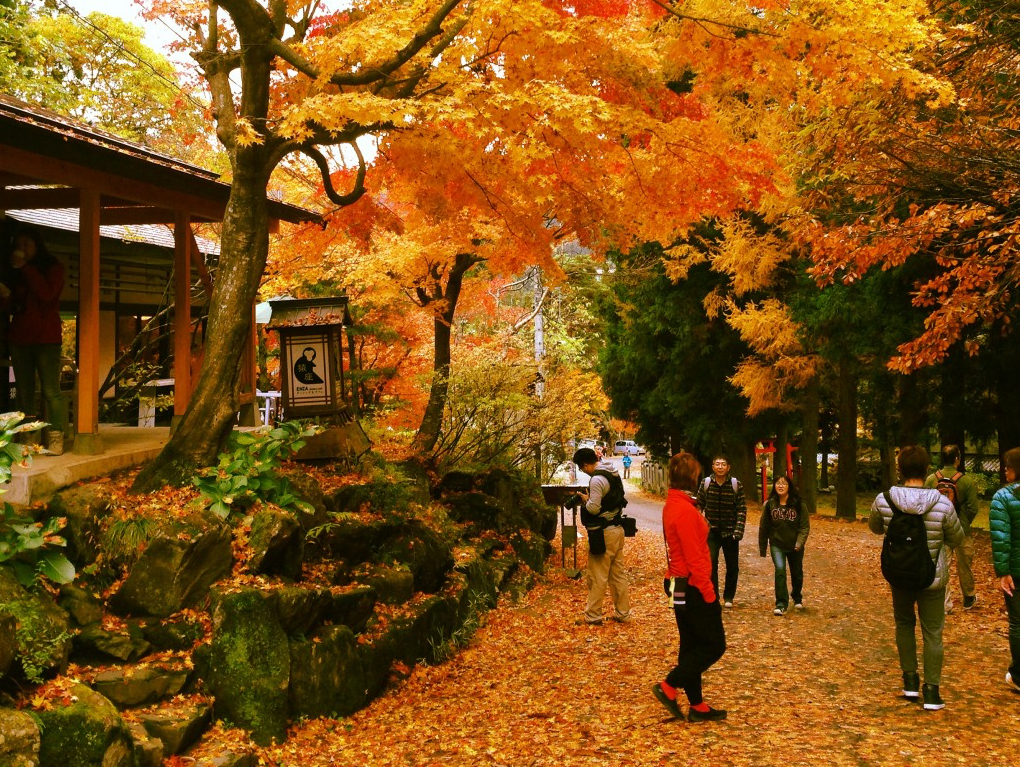
Known as ‘koyo’ in Japan, seeking-out the cherished leaves of autumn is a favourite national pastime. Typically occurring in and around Yudanaka and Shibu from October to November – depending on the location and weather conditions that year – Japanese will go great distance to see the beautiful leaves of autumn. Our 'Autumn Leaves' main page has lots of great information about when and where you can experience the leaves including nearby Shiga Kogen, which thanks to its higher altitude, usually sees the leaves turn in colour as early at mid-September.
19 / HISTORIC OBUSE & HOKUSAI / all year round
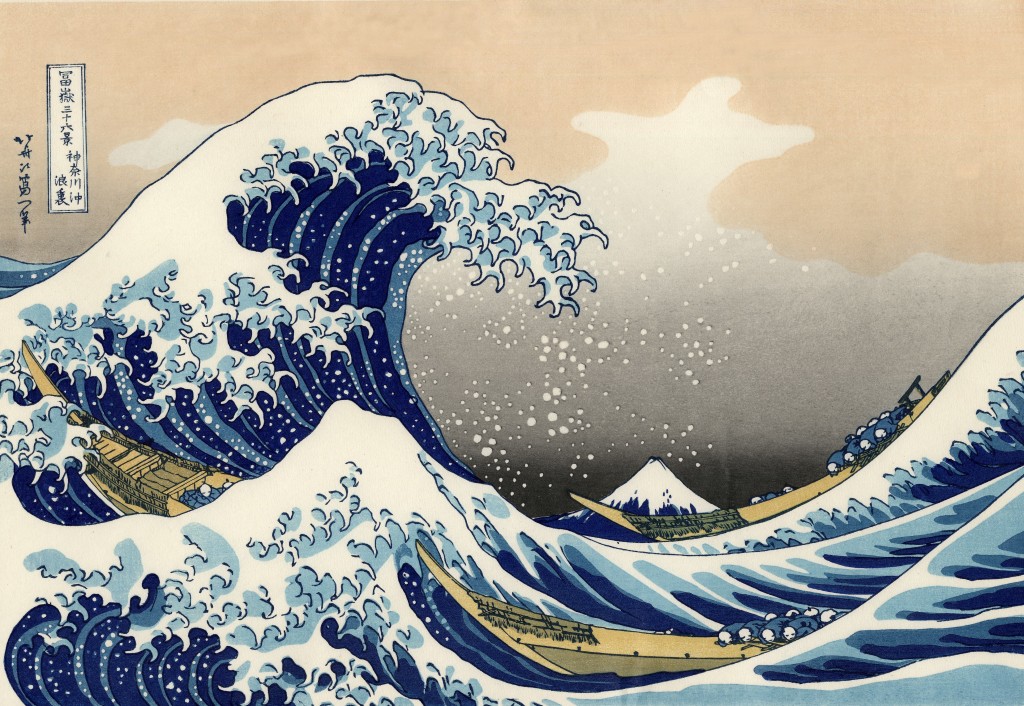
1-Day Historic Obuse & Hokusai: Japan's 'Mad Man of Art' Tour
- Spots:
- Nagano
- Pick-up:
- Nagano CityObuse
- Drop-off:
- Nagano CityObuse
Only a short train-ride from Yudanka Station, Obuse is a small but historic town known for its chestnut confectionary shops, sake and miso breweries and – perhaps most famously as home of the Obuse Hokusai-kan Museum. Having spent some of his final years painting in Obuse, the museum is dedicated to the life and work of Japan’s most famous artist, Katsushika Hokusai, and offers an engaging and informative experience. Combined with a visit to the nearby Takai Kozan Memorial Museum – at which you can enter and take in the atmosphere of Hokusai’s actual studio – along with Ganshoin Temple – the ceiling of which is adorned with Hokusai’s last great masterpiece – a visit to Obuse offers a unique glimpse into the life and work of Japan’s greatest artist. For more information, see our ’15 Things To Do Around Obuse & Where To Stay’ page.
20 / ZENKO-JI TEMPLE – NAGANO’S SPIRITUAL HEART / all year round
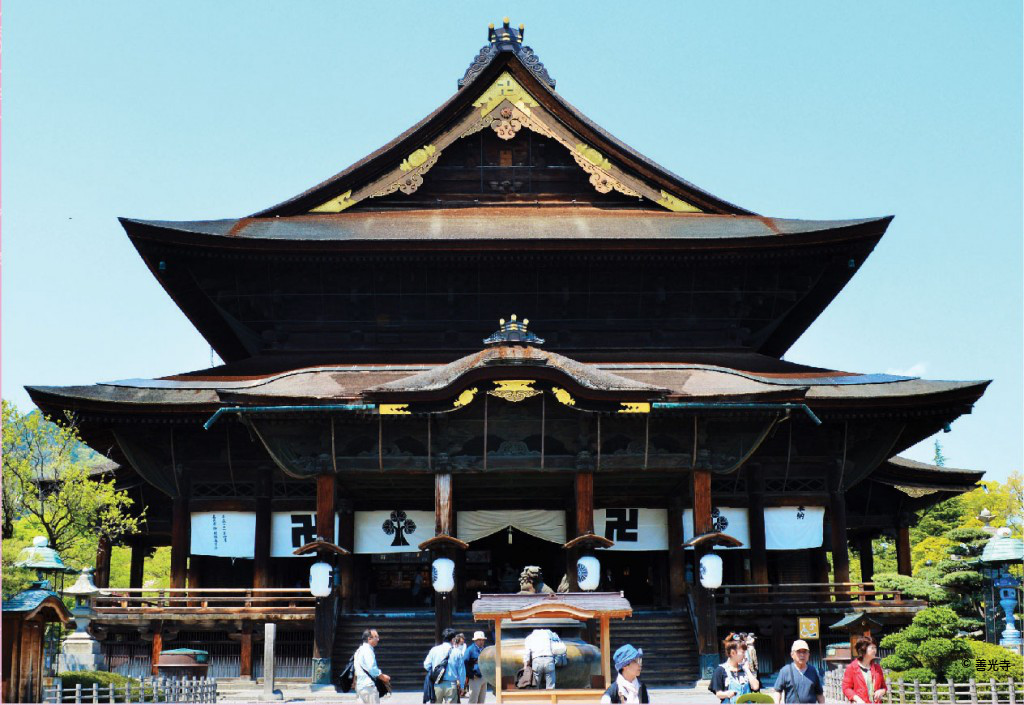
Located in Nagano City and founded in 642, Zenko-ji is one of the oldest and most important Buddhist temples in Japan. Less than 20-minutes walk from Nagano Station, follow the city’s historic thoroughfare – the ‘Omotesando’ or ‘Pilgrim’s Way’ all the way to the temple. Arriving at Zenko-ji, visitors discover one of the most welcoming temples in Japan. Housing the oldest known Buddhist statue in Japan, the main temple is a registered National Treasure and the spiritual heart of the region. A morning ceremony takes place every day of the year, with visitors of all faiths and backgrounds welcome, with the temple also hosting several major festivals each year.
WHERE TO STAY IN YUDANAKA & SHIBU ONSEN?
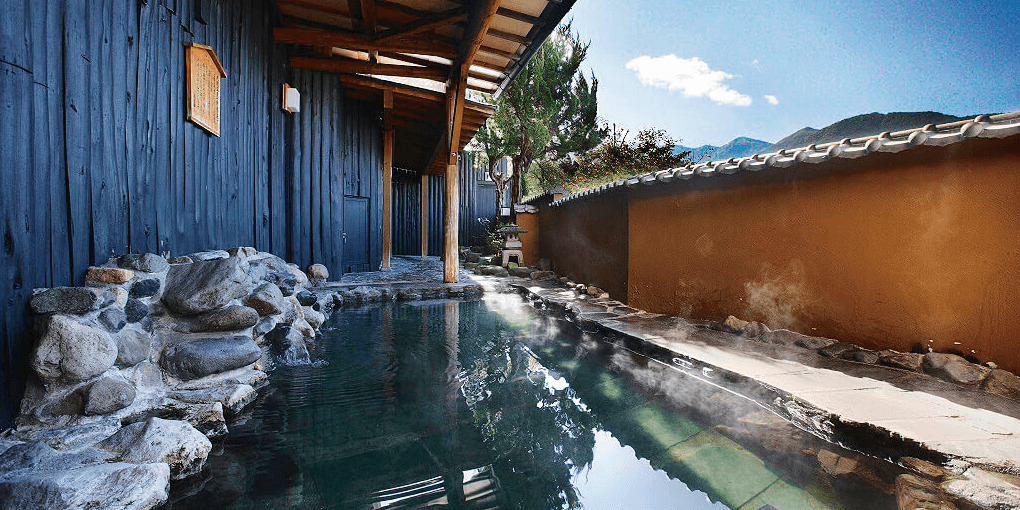
Yudanaka and Shibu Onsen spoil visitors for choice when it comes to accommodation. Both a historic ‘onsen’ towns with multiple sources of thermal water, with many if not most hotels and guesthouses featuring hot springs for the exclusive use of their guests. As noted above, it’s important to note that Yudanaka and Shibu are actually separate towns – around 15 to 20-minutes walk from each other – making it important to choose the location that best suits your needs and interests. Yudanaka spans-out around Yudanaka Station, with most hotels and guesthouses within walking distance of the station; whereas guests using the train and booking accommodation and in Shibu Onsen, will need to use a taxi from the station or request their guesthouse picks them up. In that regard, Yudanaka is the more convenient location however Shibu is a more charming town, with pleasant little streets to explore. Local bus services from both Yudanaka and Shibu run to the monkey park and various points in Shiga Kogen Ski Resort / Shiga Kogen Highlands and Joshinetsu Kogen National Park. Visitors headed to the ski resorts of Kita-Shiga Kogen would be best-served to stay around Yudanaka, from where a free shuttle bus runs to Ryuoo Ski Resort in winter while taxis will also transport you there and all other resorts.
YUDANAKA ONSEN AREA / immediately accessible from Yudanaka Station

Spanning-out from Yudanaka Station – the nearest train station to the monkey park – Yudanaka Onsen offers a variety of accommodation ranging from high-end to budget. Local bus services run to the park along with Shiga Kogen Ski Resort and the smaller resorts of Kita-Shiga Kogen from the station. Many hotels and guesthouses have their own ‘onsen’ (natural hot springs) and serve traditional ‘kaiseki’ (multi-course) dinners allowing guests to completely unwind at the end of each day. Yudanaka doesn’t have the charm of Shibu Onsen and the town is showing its age but if that doesn’t bother you, its a good option for visitors prioritising ease of access via the train station and lots of accommodation options. For accommodation listings, see our ‘Yudanaka Onsen Area’ hotel page. Here are some options:
HOTEL HOUSEI, YUDANAKA
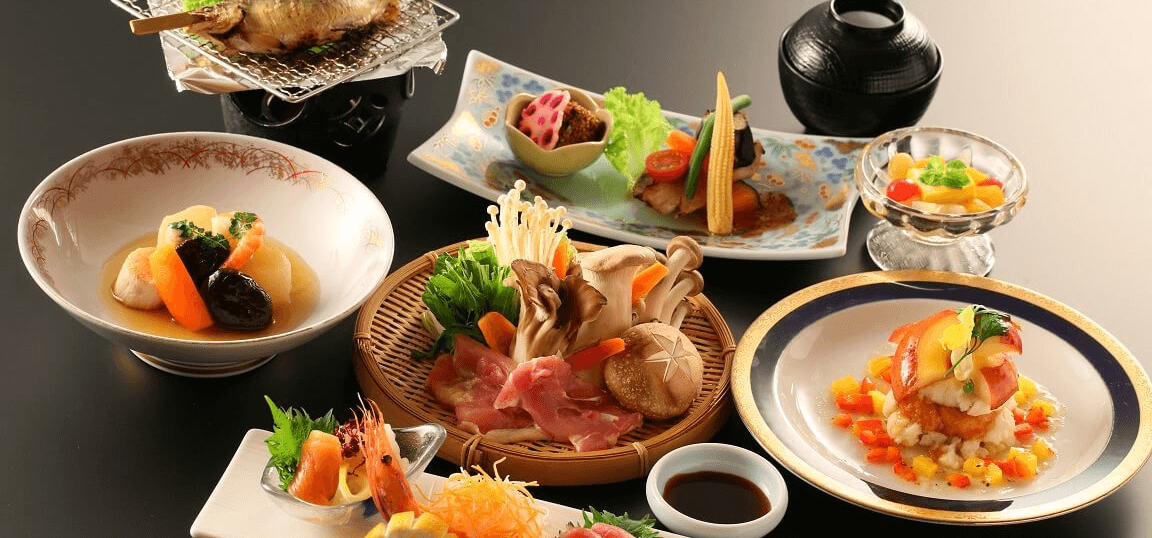
Best known for its large and indulgent hot springs, Hotel Housei offers guests total relaxation in their indoor and outdoor baths. Japanese-style rooms include ‘tatami’ matting, on-floor ‘futon’ bedding, and traditional features including low tables and amenities such as ‘yukata’ (light kimono).
HOTEL TSUBAKINO
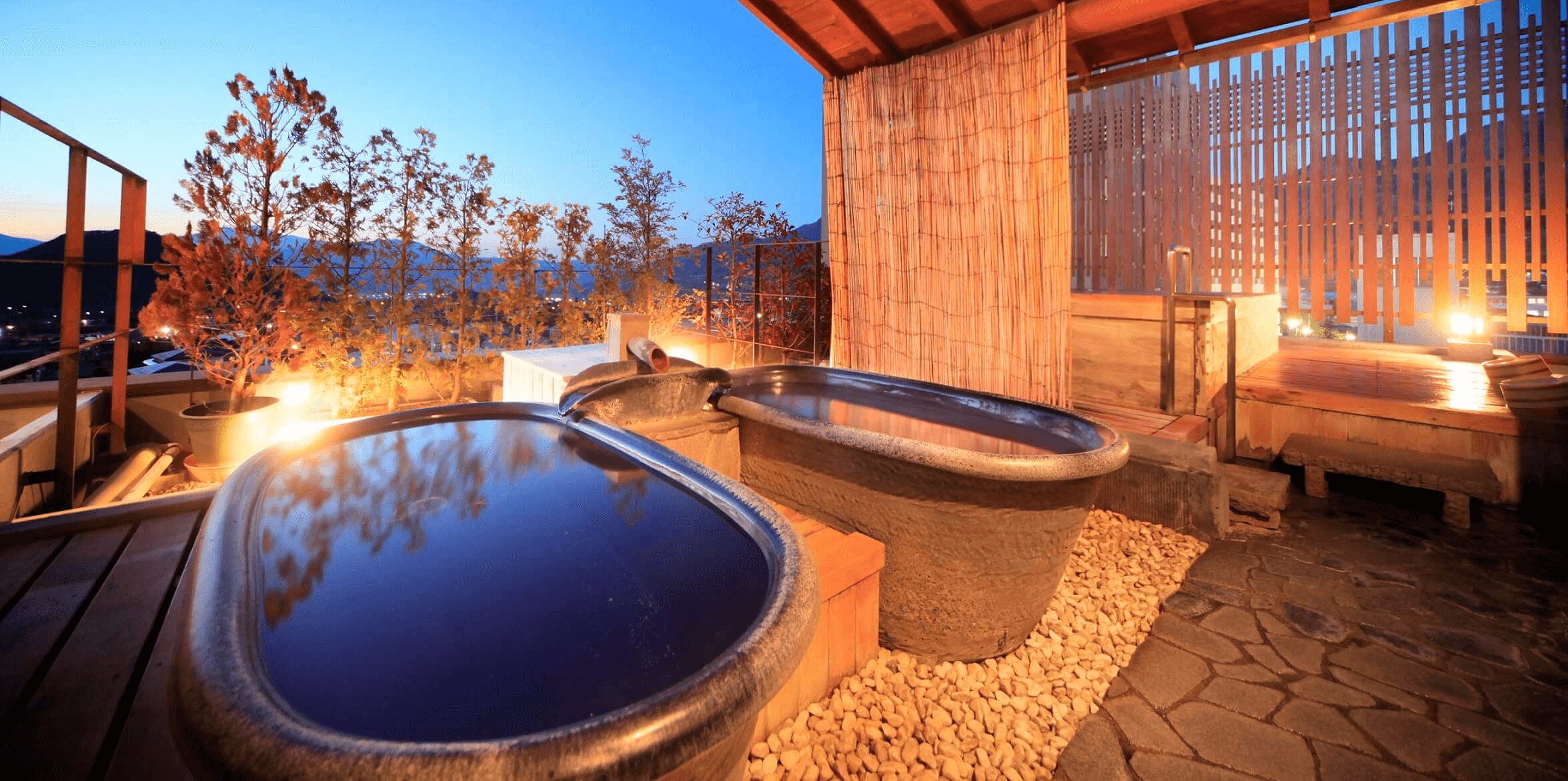
Located only a short walk from Yudanaka Station, Hotel Tsubakino is a modern ‘ryokan’ that offers both Japanese and Western-style rooms, each with its own private bathroom including shower. All guests also have access to Tsubakino’s natural ‘onsen’, including rooftop and private baths. Boasting some of the best views of any guesthouse in the area, unwinding in the onsen is the perfect way to relax at the end of a day on the mountain.
HOTEL YUDANAKA
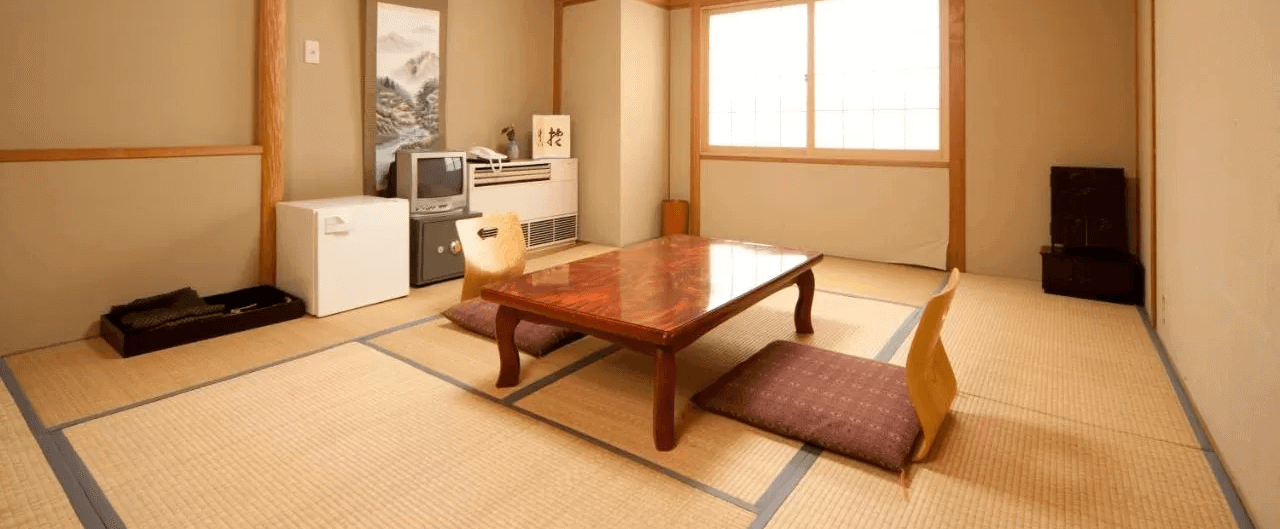
Boasting the largest ‘onsen’ in Yudanaka, Hotel Yudanaka is well-suited to guests looking for reasonably priced accommodation nearby the station. All rooms include on-floor ‘futon’-bedding, ‘tatami’-matting along with the option of dinner and breakfast meal service and guests have access to the hotel’s hot springs – including five different baths – with some rooms also including a private bath and shower.
MARUKA RYOKAN
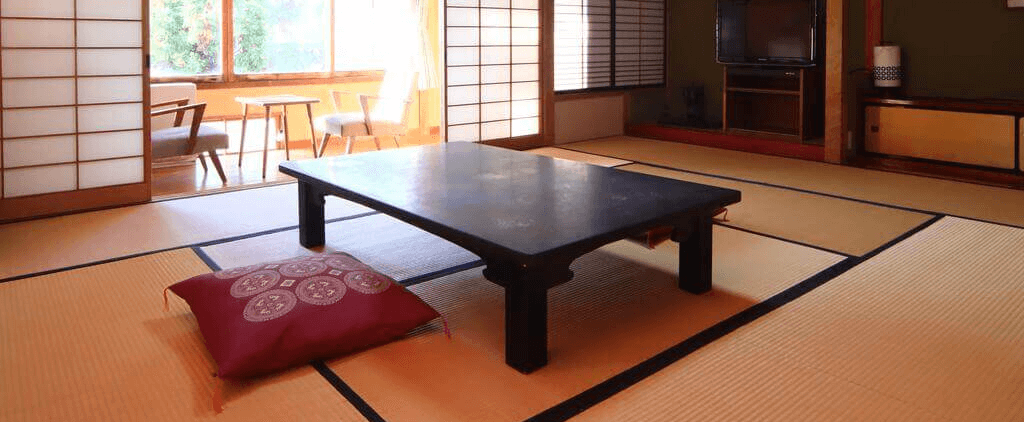
Located at the top-end of Yudanaka Onsen, Maruka Ryokan offers Japanese-style accommodation within easy reach of the Jigokudani Monkey Park and ski resorts of Shiga Kogen and Kita-Shiga Kogen. As an older guesthouse, Maruka has lots of charm which appeals to guests looking for an authentic yet simple ‘ryokan’ experience while in Nagano.
MASUYA YUDANAKA
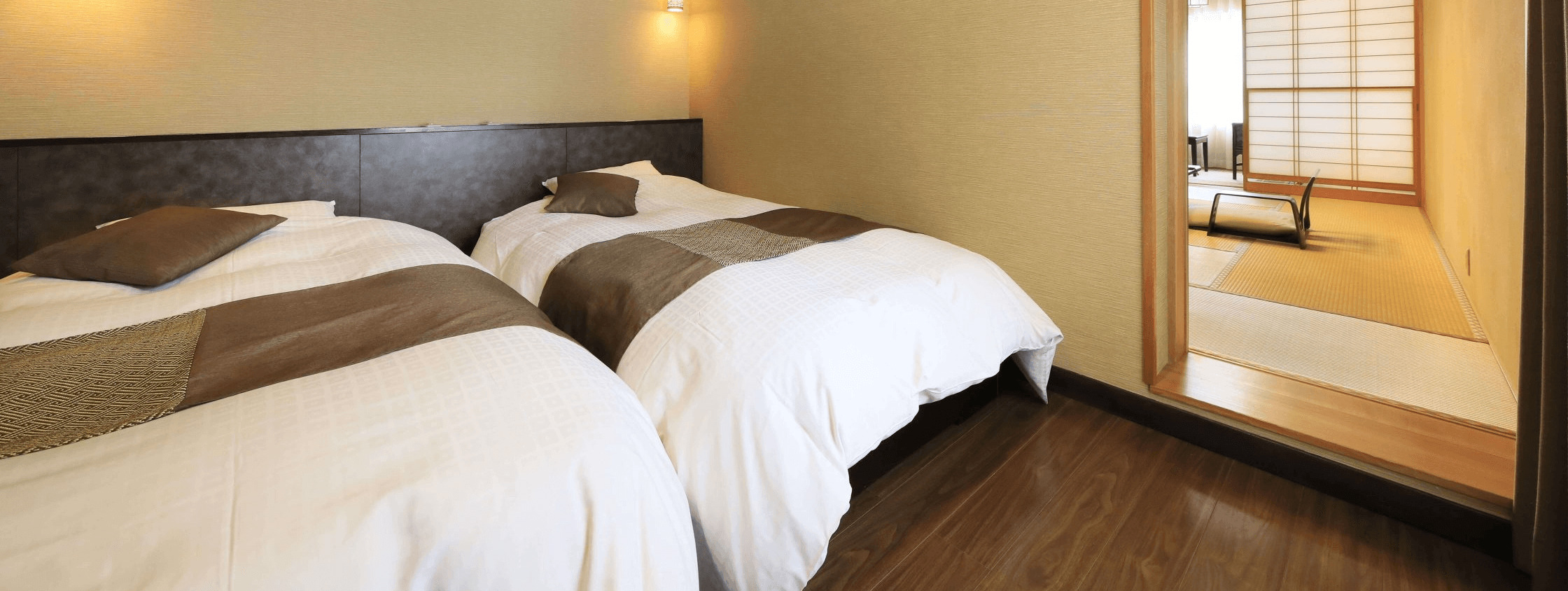
Located under 5-minutes drive from Yudanaka Station, Masuya Yudanaka is a traditional guesthouse offering spacious and comfortable rooms, relaxing hot springs and acclaimed meal service. Masuya prides itself on creating a traditional atmosphere and excellent service in order that their guests can relax and unwind.
RYOKAN BIYUNOYADO
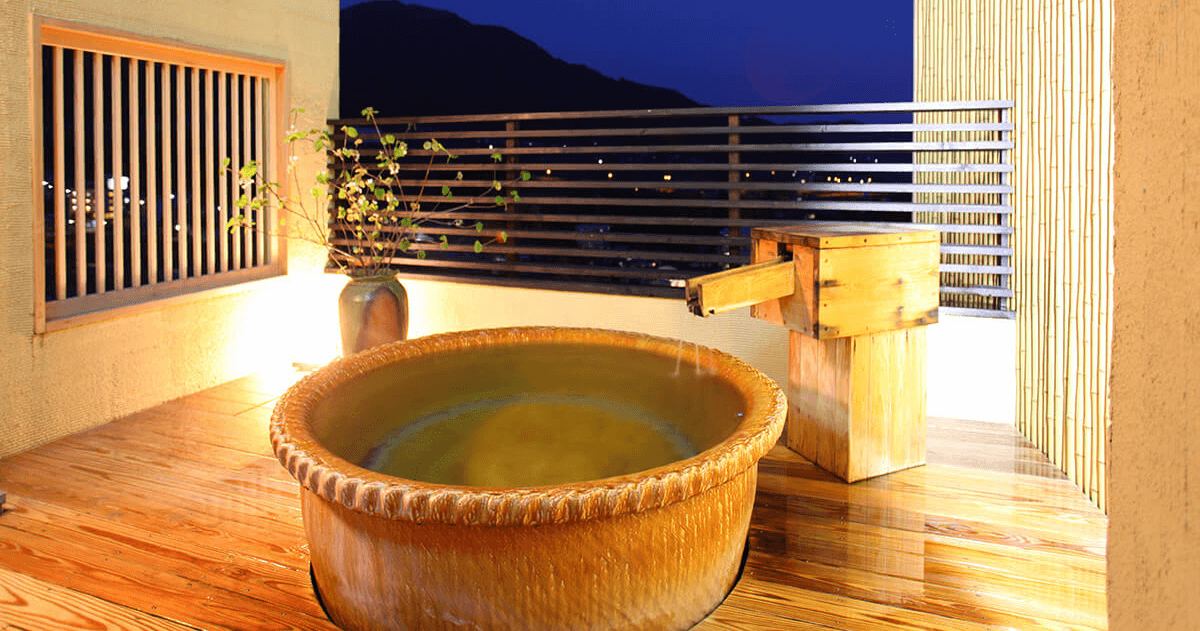
Ryokan Biyunoyado is known for its spacious and indulgent ‘onsen’ including indoor, outdoor, rooftop and private baths. With a range of baths to choose from including rooftop and private onsen, Biyunoyado is a great option for visitors wanting to enjoy the relaxation of a traditional hot spring guesthouse with comfort of Western amenities.
RYOKAN HAKURA
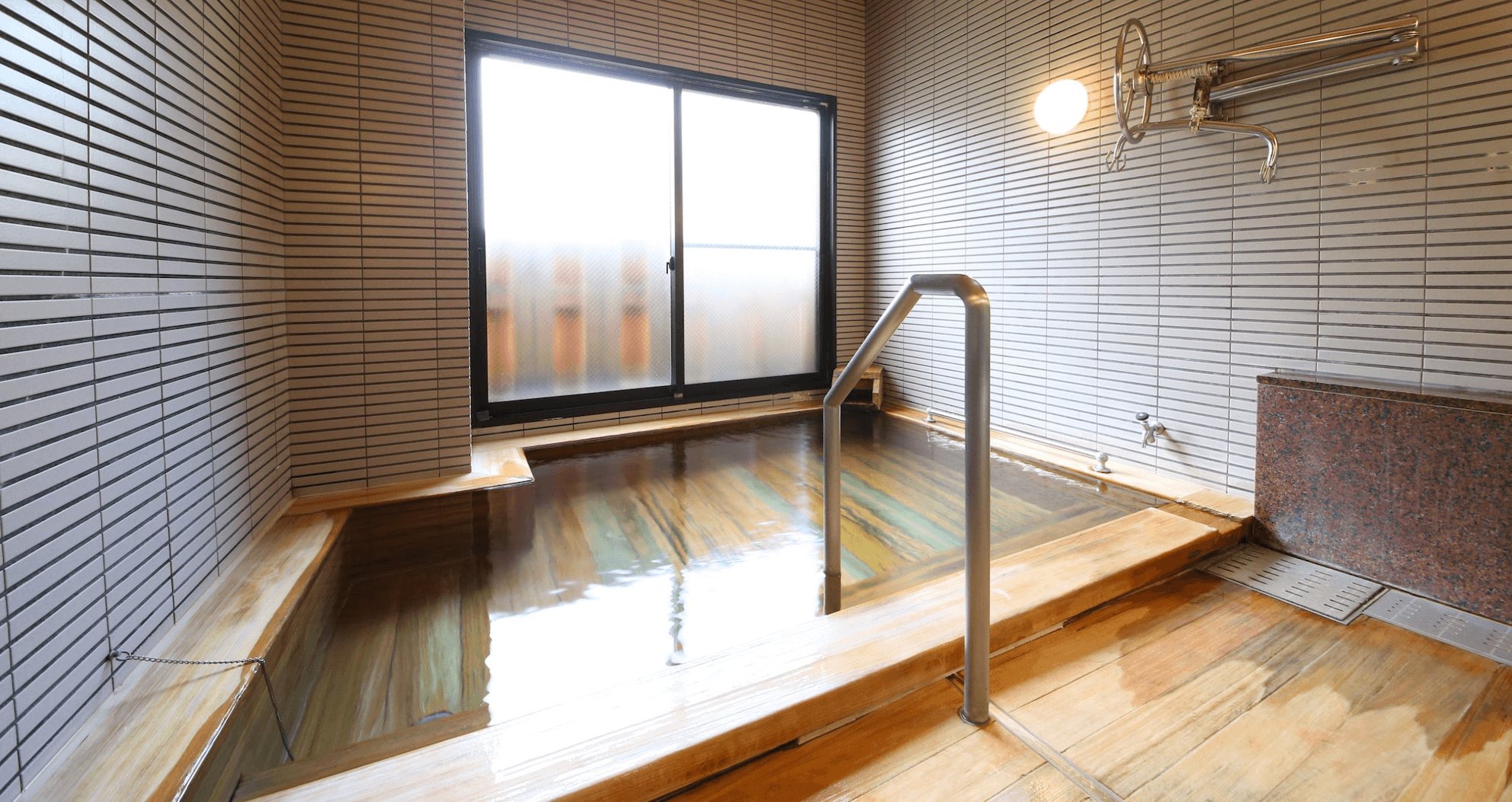
With only nine rooms in the guesthouse, Ryokan Hakura has a welcoming and intimate atmosphere with facilities well-suited to disabled guests. The guesthouse offers both Japanese and mixed Western-Japanese style rooms with Western-bedding and private toilet and shower.
YAMAZAKIYA RYOKAN
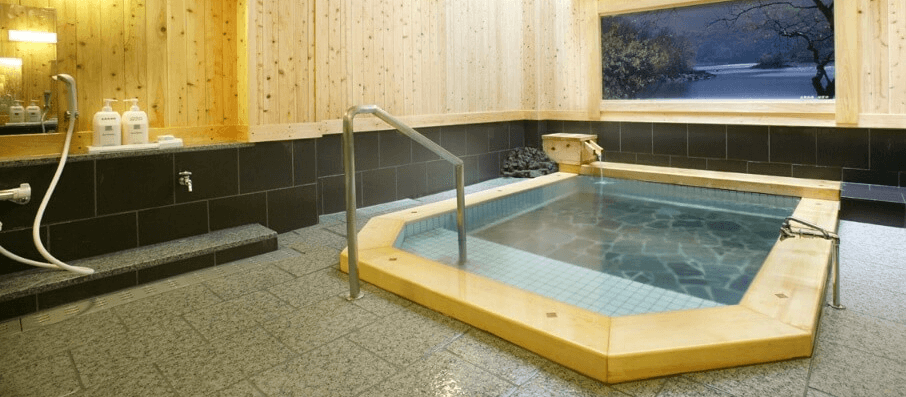
Located within easy walking distance of Shibu Onsen, Yamazakiya is a homely ‘ryokan’ known for its warm welcome and particularly friendly owners. The small two-storey guesthouse has only eight Japanese-style rooms, each with its own private toilet and bath. While the guesthouse and meals may not be luxurious, the owners pride themselves on creating a comfortable and welcoming atmosphere – a good option for guests looking for cheaper accommodation close to historic Shibu Onsen.
YUDANAKA SEIFUSO RYOKAN
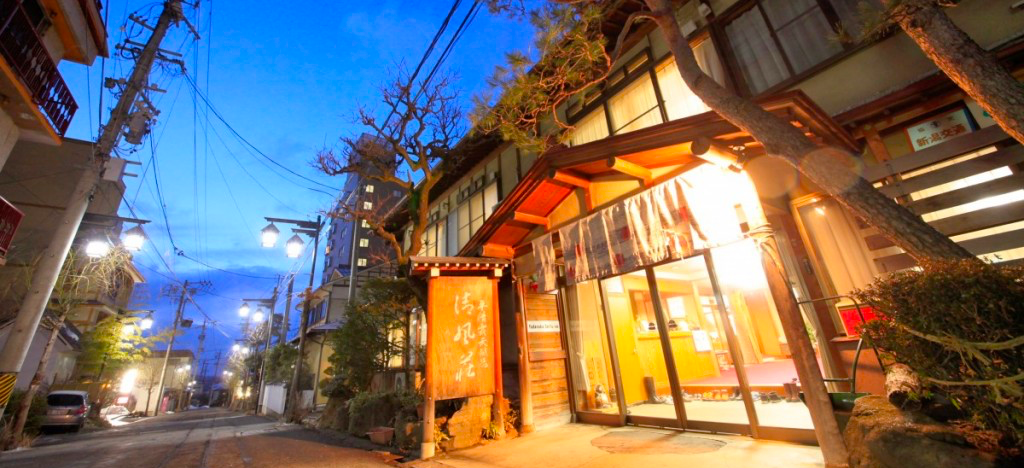
Yudanaka Seifuso Ryokan is a popular, family-run guesthouse offering all the comforts of a traditional Japanese inn. Boasting three ‘onsen’, one of which can be booked for private use, Seifuso is known for its comfort and traditional service including Japanese-style rooms and ‘kaiseki’ dining.
YUDANAKA YUMOTO
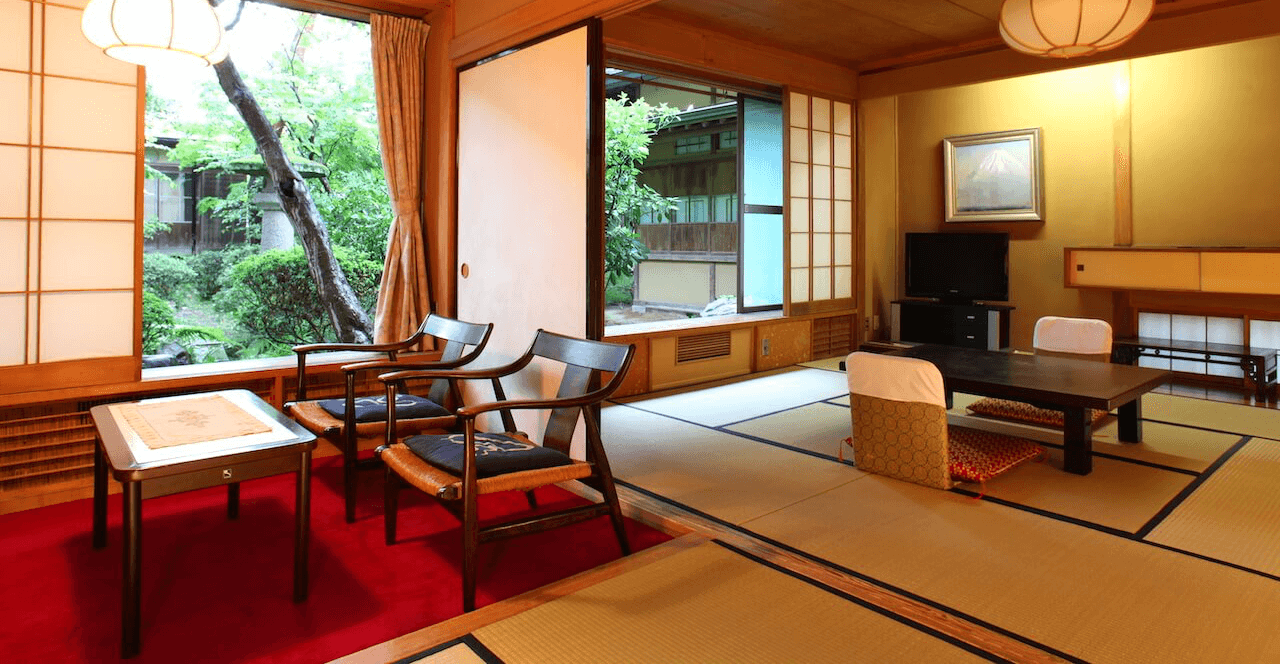
Yudanaka Yumoto is a traditional Japanese ‘ryokan’ located approximately 10-minutes walk from Yudanaka Station. Dating back to Japan’s Edo Period, Yumoto is Yudanaka’s oldest guesthouse – known for its welcoming atmosphere, homely comforts and relaxing hot springs.
SHIBU ONSEN AREA / <5-minutes drive from or 25-minute walk from Yudanaka Station
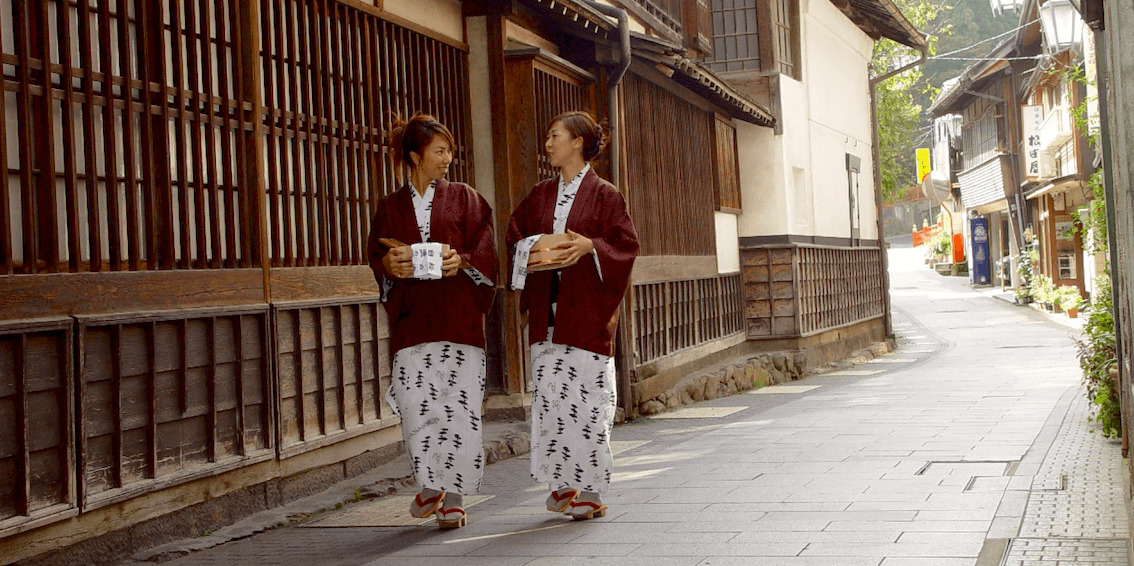
Shibu Onsen is a historic hot spring town blessed with numerous water sources feeding the many hotels and guesthouses concentrated within a small area. Most guesthouses have their own hot springs with town also boasting nine ‘public’ onsen that can be used free of charge by anyone staying overnight in Shibu. A quaint town with some good dining options and a couple of bars, Shibu Onsen has retained more of its hisotric character and charm then Yudanaka Onsen and has a lot more going on than Kanbayashi Onsen. For accommodation listings, see our ‘Shibu Onsen Area’ hotel page.
HOW TO GET TO YUDANAKA & SHIBU ONSEN
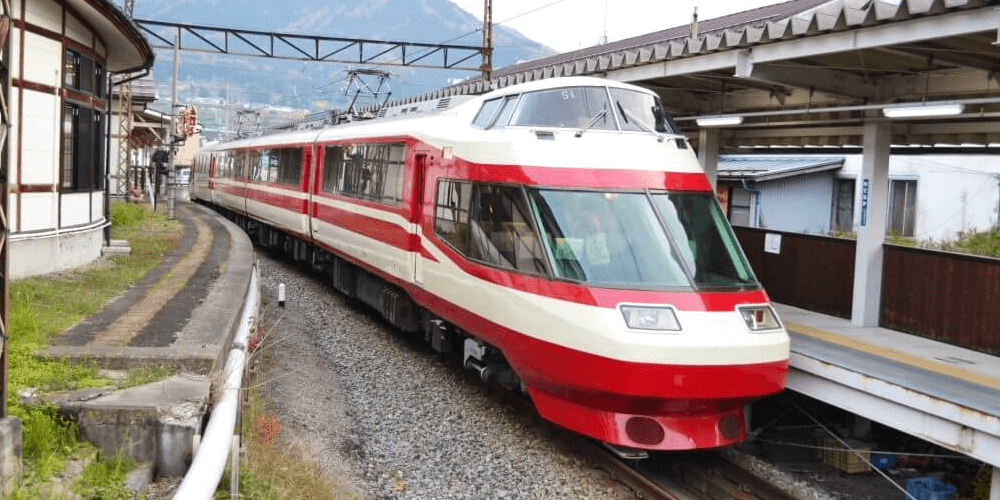
The Nagano Dentetsu Railway line runs from Nagano Station to Yudanaka Station, with express services making the journey in 45-minutes. As such, both Yudanaka and Shibu Onsen are easy to reach using pubic transport. Our ‘How to Get to Yudanaka & Shibu Onsen’ page has detailed information about how to get there from Nagano, Tokyo and beyond.
TOURS AND CHARTERS AROUND YUDANAKA/SHIBU ONSEN
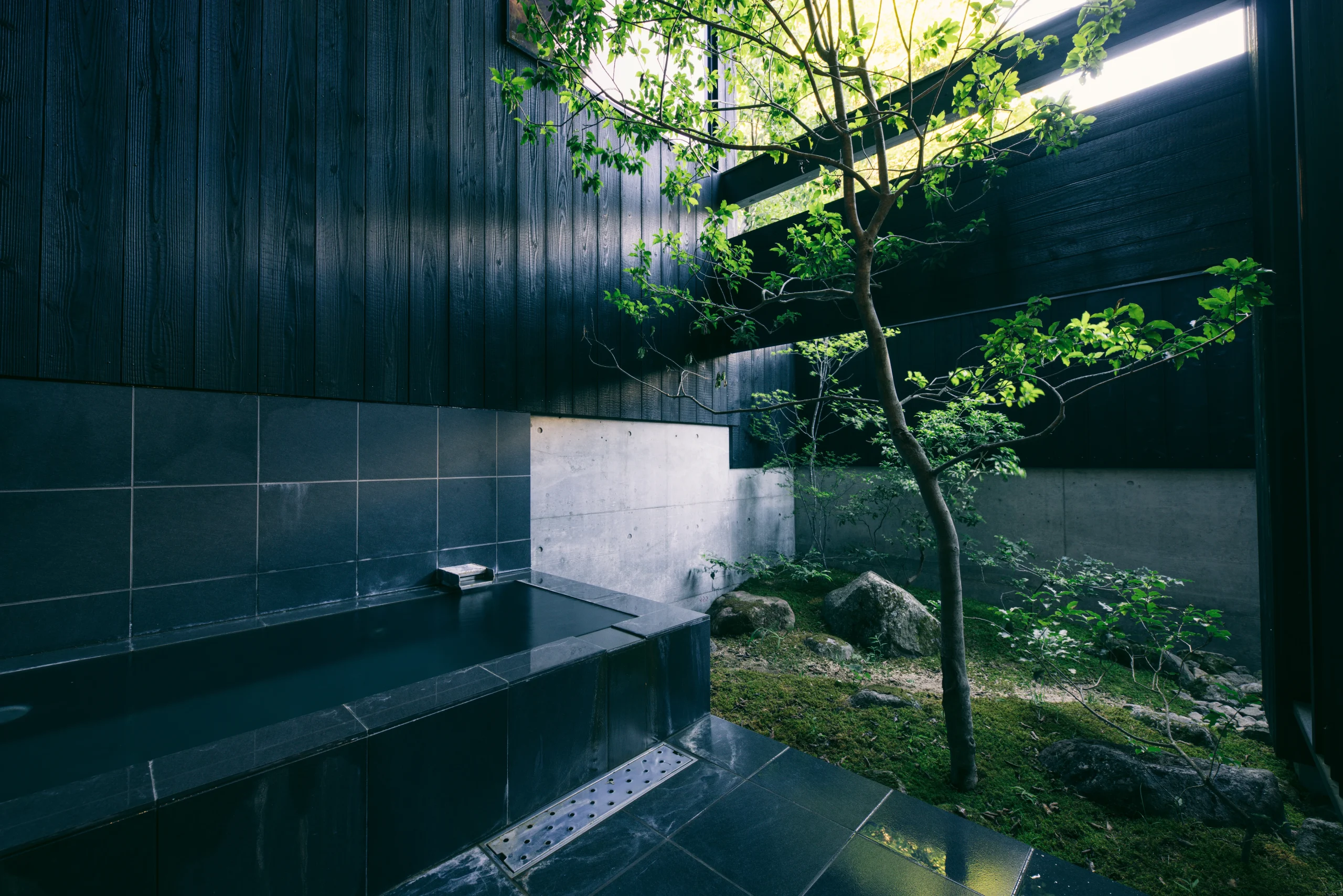
We are proud to offer a number of tours and private charter services granting easy access to the Yudanaka/Shibu Onsen area. Whether you want to take a group tour and make some new friends, book a private tour for a more personalized experience, or just need transport for your group, we are ready to help.
Best Selling
1-Day Tour: Snow Monkeys, Zenkoji Temple & Sake in Nagano
- Spots:
- NaganoSnow MonkeyHakuba
- Pick-up:
- Nagano CityHakuba
- Drop-off:
- Nagano CityHakuba
Our most popular tour (for good reason!), this group tour of Nagano City and the Snow Monkey Park is a great way to experience the best of what both of these great destinations have to offer. With pickup from Nagano Station, and also Hakuba in winter, this tour is also a great way to travel to the Yudanaka Onsen area - simply let your guide know that you will be leaving the tour at the Snow Monkey Park area. Including Sake tasting and a visit to the magnificent Zenkoji Temple before an afternoon at the Snow Monkey Park, this is our top recommendation for seeing the area.
[START FROM NAGANO CITY] Private Snow Monkey Tour
- Spots:
- NaganoSnow Monkey
- Pick-up:
- Nagano City
- Drop-off:
- Nagano CityHakubaNozawa OnsenShiga KogenMadaraoMyoko
We can also offer a private tour with the same stops as the above group tour, perfect for groups looking for more personalization and freedom. Including an extra stop in at the quaint town of Obuse, once home to famous artist Katsushika Hokusai, you can't go wrong with this option if you want to see the monkeys of Jigokudani and enjoy a pleasant day with a friendly guide.

If you are not in need of a guide and would like to make your own schedule, we also offer private charter services. With well trained and safe drivers, we are ready to bring you to and from the Yudanaka/Shibu area from any point of your choice, including places as far away as Tokyo. You can even hire a guide to come along and make it your own private, personalized tour! Please contact us HERE for more information on pricing and availability.



